28 Oct, 2024 | Admin | No Comments
Bison Vs Raptor Vs Trailhunter: The Ultimate Off-Road Truck Showdown
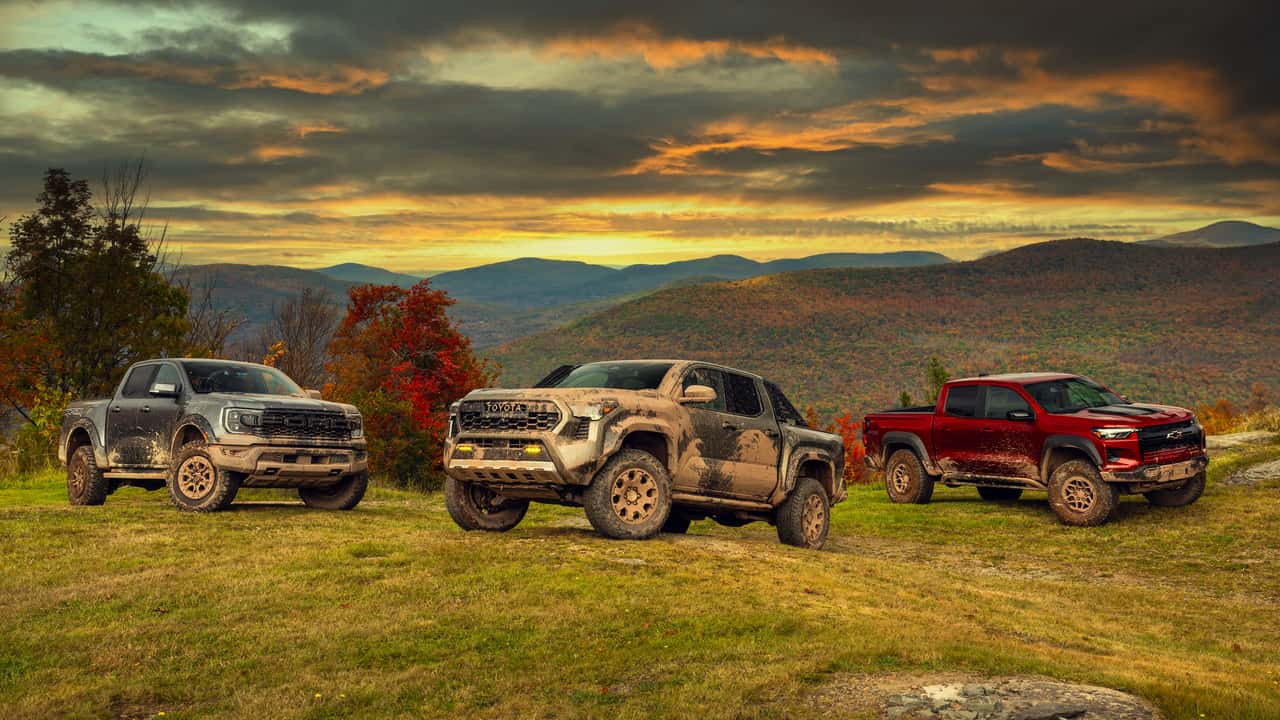

The American West can credibly stake its claim as the most beautiful part of the country. At least most of the year. But for a few short weeks each fall, the Northeast is spectacular, an overhead explosion of red, orange, and yellow attracts the masses to the Adirondacks, Appalachian, Poconos, and these mountains, the Catskills. Long a refuge for weary New Yorkers who need a bit of maple and birch in their life, it’s also the perfect place and time to test the year’s greatest off-road pickups.
These sorts of trucks didn’t exist all that long ago. Even five years ago, the thought of an automaker selling you a mid-size pickup on 33-inch tires was laughable. Let alone one on 35s. But overlanding and off-roading have exploded in popularity, and within the last two years, we’ve gotten new versions of the Toyota Tacoma, Ford Ranger, and Chevrolet Colorado, each with its own hardcore off-roading variant.
We carried this test out over two days with the help of the wonderful folks at Northeast Off-Road Adventures in the eastern Catskill mountains. Day one was at NORA’s facility in Ellenville, NY, with technical terrain to test each truck’s mettle. The next, a tour up Hunter Mountain for some more casual off-roading, and a good excuse to take in the changing scenery.
| Colorado ZR2 Bison | Ranger Raptor | Tacoma Trailhunter | |
| Engine | Turbo 2.7-Liter Four-Cylinder | Twin-Turbo 3.0-Liter V-6 | Turbo 2.4-Liter Four-Cylinder Hybrid |
| Output | 310 Horsepower / 430 Pound-Feet | 405 Horsepower / 430 Pound-Feet | 323 Horsepower / 465 Pound-Feet |
| Payload | 1,050 Pounds | 1,542 Pounds | 1,475 Pounds |
| Towing | 5,500 Pounds | 7,500 Pounds | 6,000 Pounds |
| Base Price / As Tested | $60,095 / $65,030 | $57,215 / $59,530 | $64,395 / $64,944 |
The Chevrolet Colorado ZR2 Bison has been around since 2018, though this second version is a far more serious proposition than the first. Developed in tandem with upfitter American Expedition Vehicles, the Bison gets the ZR2’s incredible Multimatic Dynamic Spool-Valve Suspension (DSSV) dampers, plus locking differentials, then and adds new hydraulic bump stops to the suspension, steel bumpers front and rear, steel underbody protection, rock rails, and 35-inch Goodyear Wrangler tires instead of the standard 33s. The Bison package adds an $11,750 upcharge over the standard ZR2’s $48,695 MSRP, adding a ton of protection but only around 200 pounds of weight overall, thanks to the use of boron steel throughout.
Toyota takes aim at the mid-size supertruck segment with two flagship off-road Tacoma variants. There’s the familiar desert-runner TRD Pro, and this, the overlanding-focused Trailhunter. Like the ZR2 Bison, the Trailhunter is upfitted from the factory. Toyota partnered with ARB for a new steel rear bumper, a sport bar with MOLLE panels for mounting gear, underbody protection, lights, and lifted Old Man Emu suspension. There’s also a sway-bar disconnect, 33-inch Goodyears, and a snorkel, among other off-road goodies. It’s yours for $64,395, and the only truck here available in five- and six-foot bed configurations.
While Ford previously had a Ranger Raptor, this is the first offered in America. It’s the odd one out here, designed for wide-open desert running rather than threading between birch trees. But, it’s got 33s, front and rear lockers, Ford’s off-road cruise control system, and a snarling twin-turbo 3.0-liter V-6 paired with a 10-speed automatic. While it’s not cheap, with a base price of $57,215, the Ranger Raptor is the cheapest truck here.
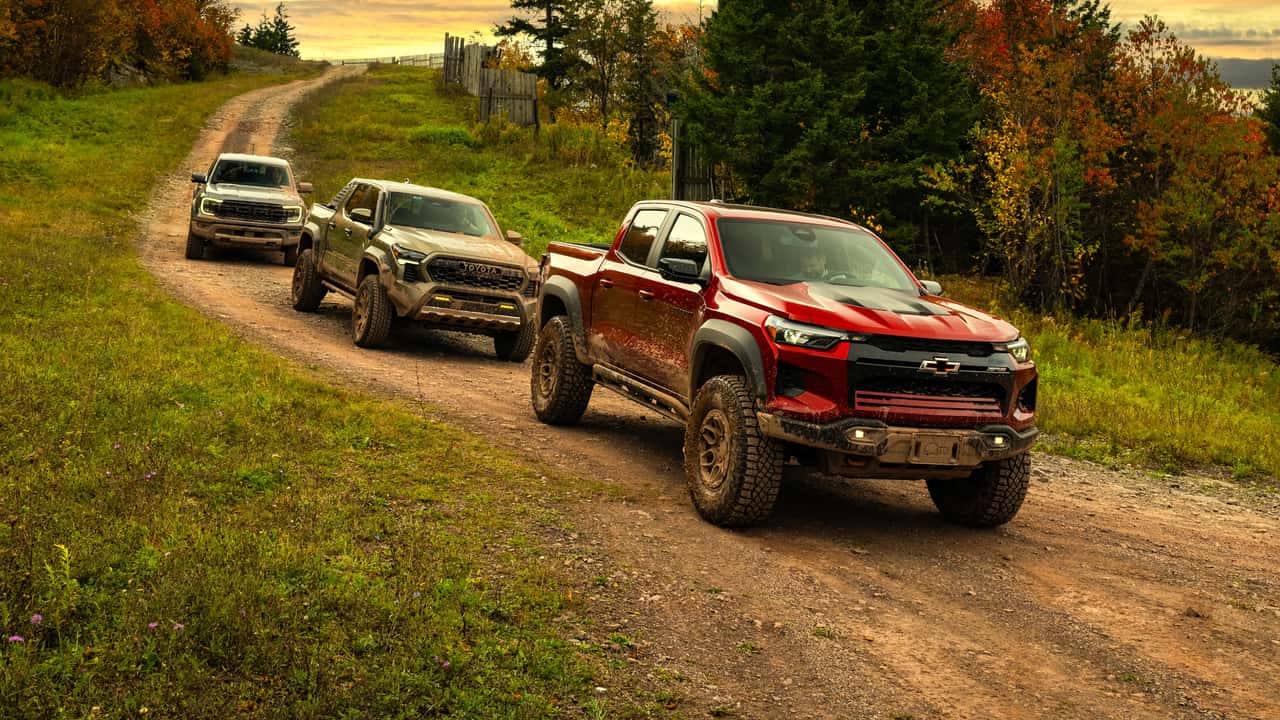
Andrew Link | Motor1
NORA considers itself a training facility, not a traditional off-road park, and within its wooded 75 acres is every type of terrain you can imagine. Steep ascents and descents, narrow paths through the trees—too small for full-size pickups—ridges, stream crossings, and lots and lots of rocks.
Out on the trails, it doesn’t take long to realize the ZR2 Bison is easily the most capable. Thirty-fives will do that, but so will a well-executed traction control system. At first, it’s a little hard to make sense of the ZR2’s drive modes, with settings labeled simply “Off-Road” and “Terrain,” and no sort of low-speed cruise control system other than hill descent control, which is buried in the infotainment system. Essentially, you can forget about Terrain most of the time. It’s a sort of one-pedal off-road mode, which aggressively grabs the brakes as you come off the throttle. Terrain makes left-foot braking a little easier in technical off-roading scenarios, but I find it to be unintuitive.
Just put the Bison in Off-Road mode, switch its transfer case to 4-Lo, and be amazed at the way the Chevy makes every obstacle feel like nothing. We weren’t on the most difficult terrain, admittedly, but we did leave the tires aired up just to make things a bit more challenging. Still, nothing was stopping the ZR2—we never once engaged the diff locks. The sheer mechanical grip on offer, combined with traction control, just took care of everything. Real-deal rock rails are a big help over NORA’s “rock river” and various stream crossings, too. That, plus lots of underbody armor, takes a lot of the stress out of difficult terrain—you know you’re well-protected from most obstacles.
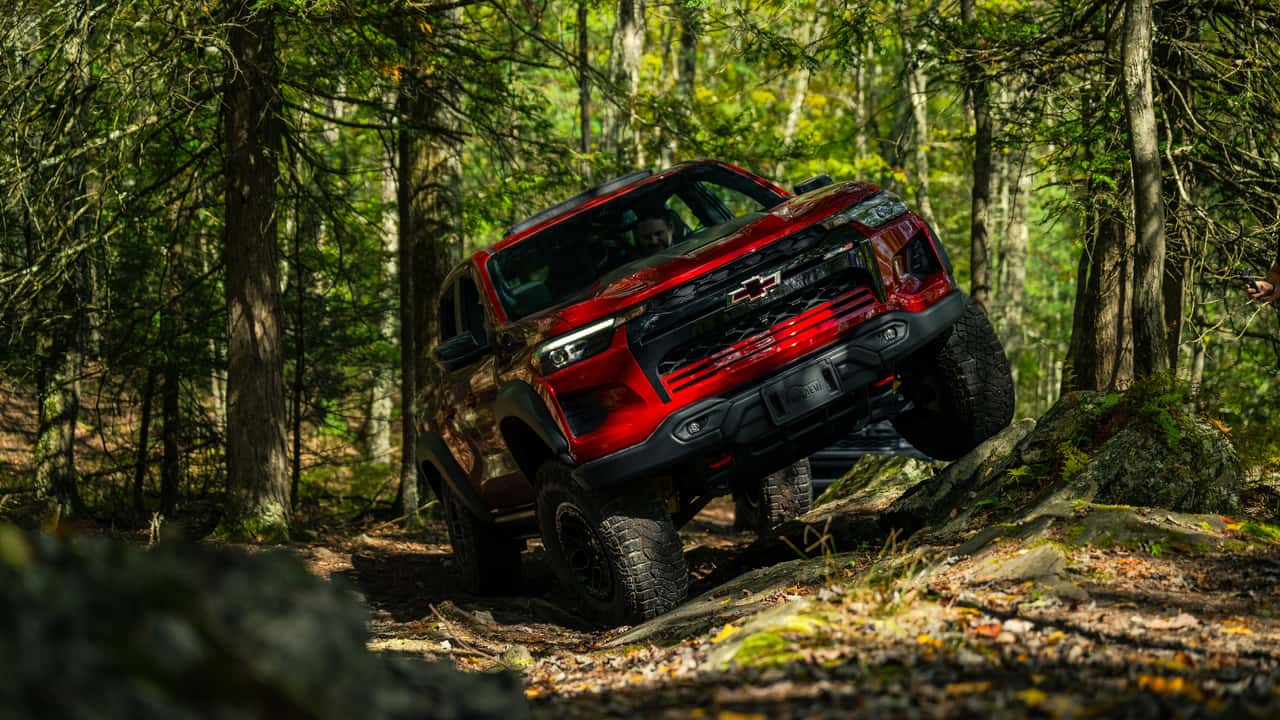
Andrew Link | Motor1
One of the best parts of NORA’s trails is what they call “Pucker Ridge,” an articulation test over rocks on the edge of—you guessed it—a ridge. Here, the Chevy asserts its dominance. Our trail guide immediately recognizes the potential and has me put my left front tire up a steep rock to make things even harder. You’ll hardly find a passenger vehicle that won’t lift a tire or two up over the rocks, and the Bison does, but traction isn’t an issue. Hold a constant throttle and the truck figures out how to get you up and over.
Yet, the ZR2 Bison doesn’t simply walk away here—the Toyota has a ton to offer, too. Over Pucker Ridge, we ran the Trailhunter twice, once with the sway bar connected and once with it disconnected. The first time, it struggled a bit, but with the rear differential locked and Toyota’s excellent traction control system figuring things out, it got over. Just not quite as gracefully as the Bison. With the front bar disconnected, however, it did even better. From outside, you can see the effect, and the Trailhunter looks quite noble coming back onto the main trail.
“The Tacoma is really easy to drive off road,” says Social Media Editor Maddox Kay. “Switching drive modes and enabling different off-road features in this is much more intuitive than it is in Colorado, where you have to tap around in more menus.”
| Colorado ZR2 Bison | Ranger Raptor | Tacoma Trailhunter | |
| Approach | 38.2° | 33° | 35.2° |
| Breakover | 26.9° | 26.4° | 26.4° |
| Departure | 26° | 24.2° | 24.2° |
| Ground Clearance | 12.2 Inches | 10.7 Inches | 11.0 Inches |
| Width | 80.1 Inches | 79.8 Inches | 79.9 Inches |
| Wheelbase | 131.0 Inches | 128.7 Inches | 131.9 Inches |
The Tacoma has a handy panel in the center console with buttons and toggles for 2-Hi, 4-Hi, and 4-Lo, plus all of Toyota’s excellent off-road systems. Multi-Terrain Select (MTS) optimizes traction for various surfaces, and Crawl Control—a low-speed, off-road cruise control. On paper, we thought the Toyota’s lack of a locking front differential would be an issue, but its clever software does such a good job of managing traction that we didn’t miss it. Sure, we had to use the rear locker from time to time, but the Trailhunter’s front sway bar disconnect helps improve articulation massively.
“The Colorado uses its muscle, its hardware, but the Toyota has all the tech to make it seem just as capable,” says Head Of Video Mike Roselli.
Of the three, it’s by far the easiest to get in and wheel. You can tell Toyota is going for something a little different here, prioritizing off-road comfort and stability over eking out the last little bits of capability.
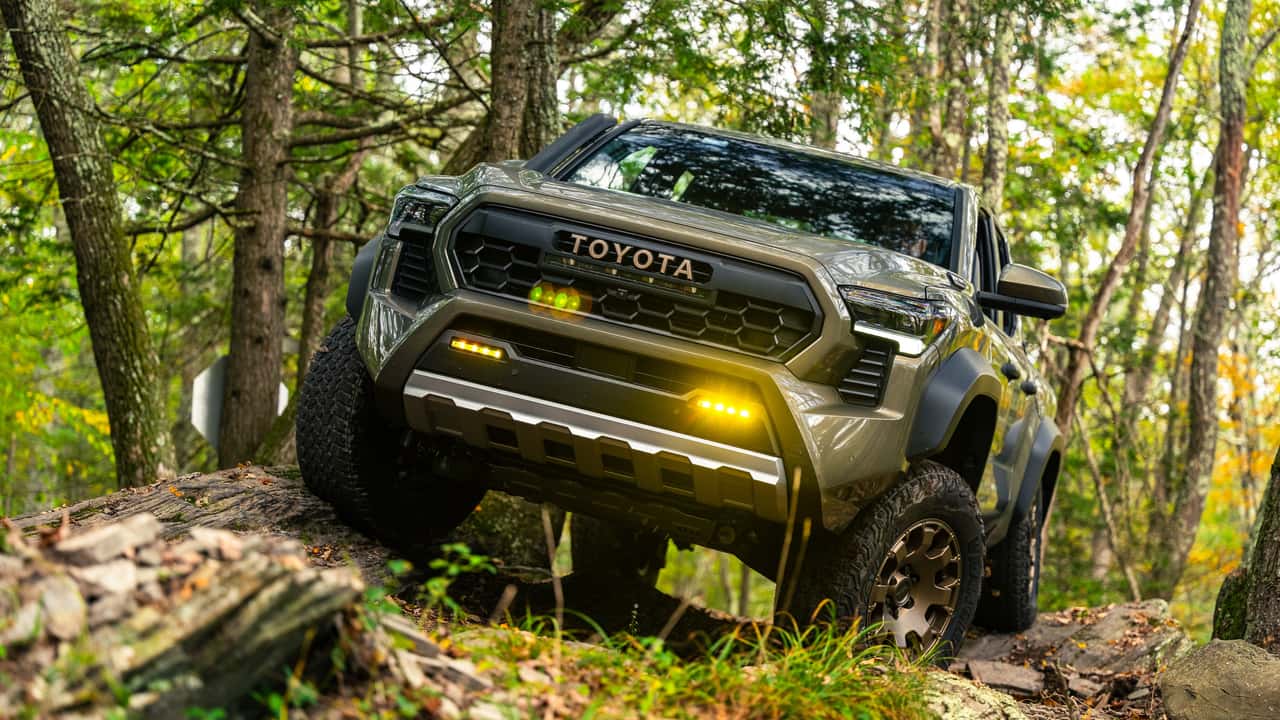
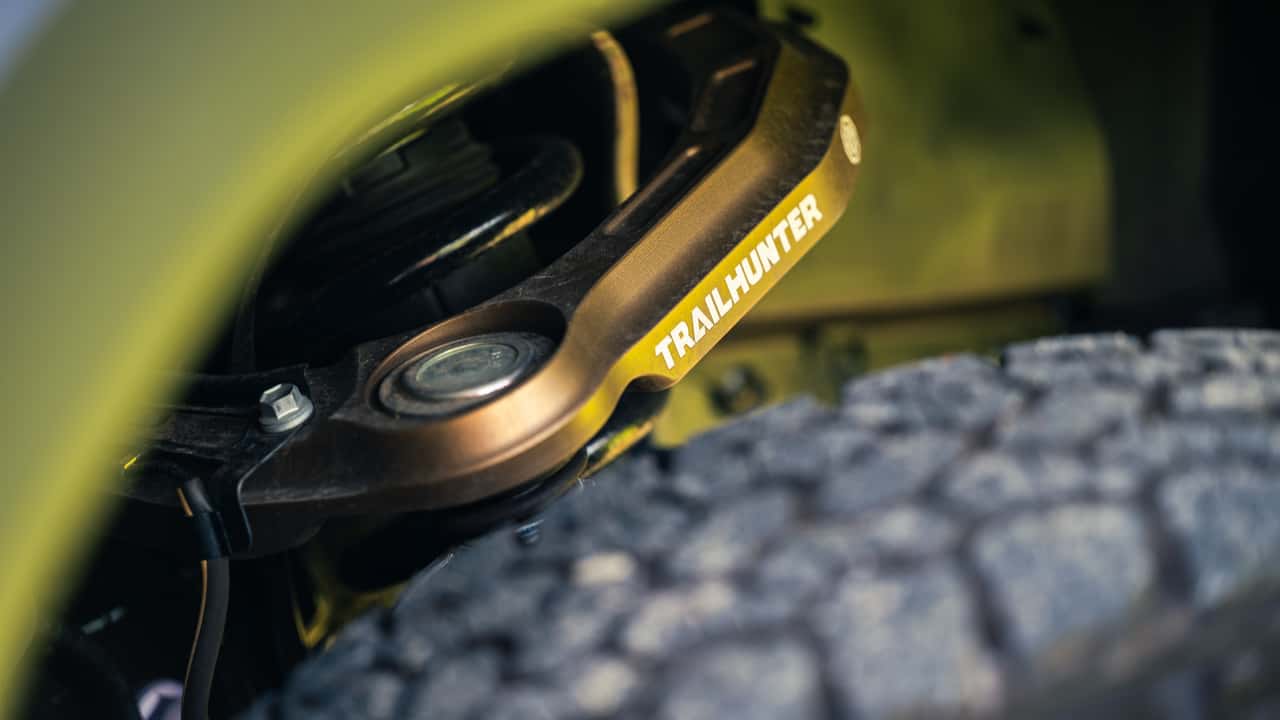
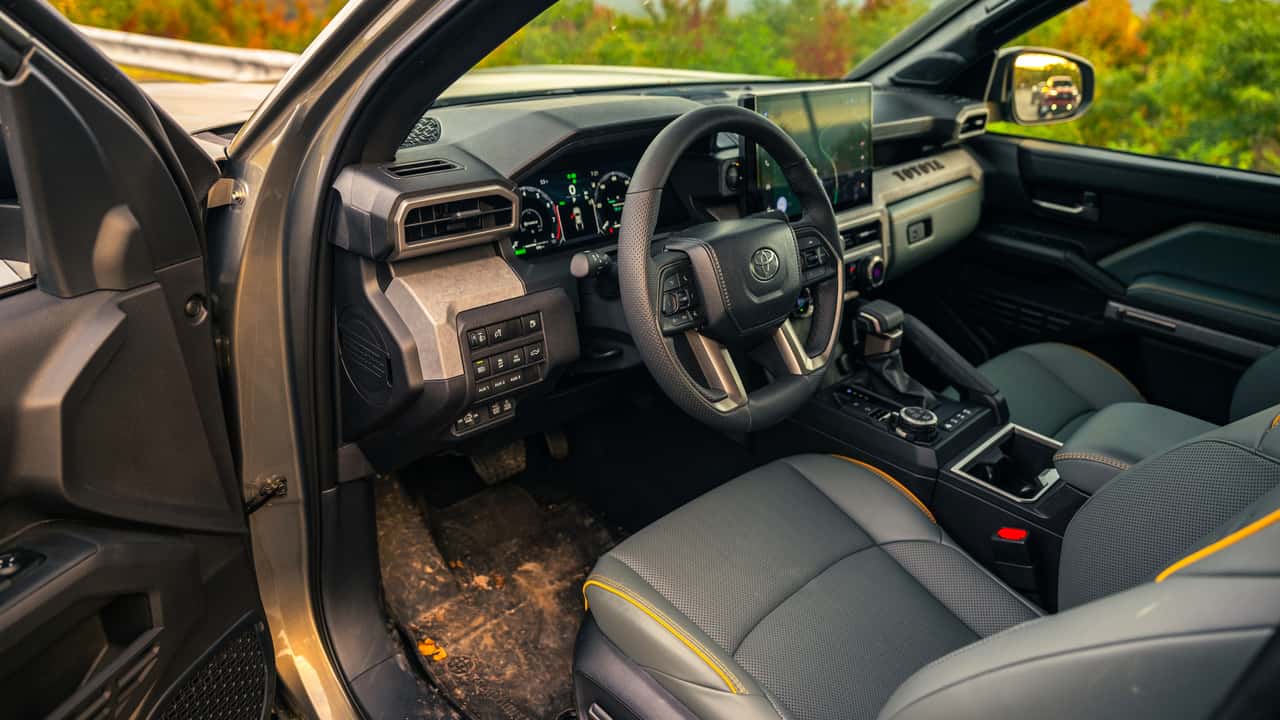
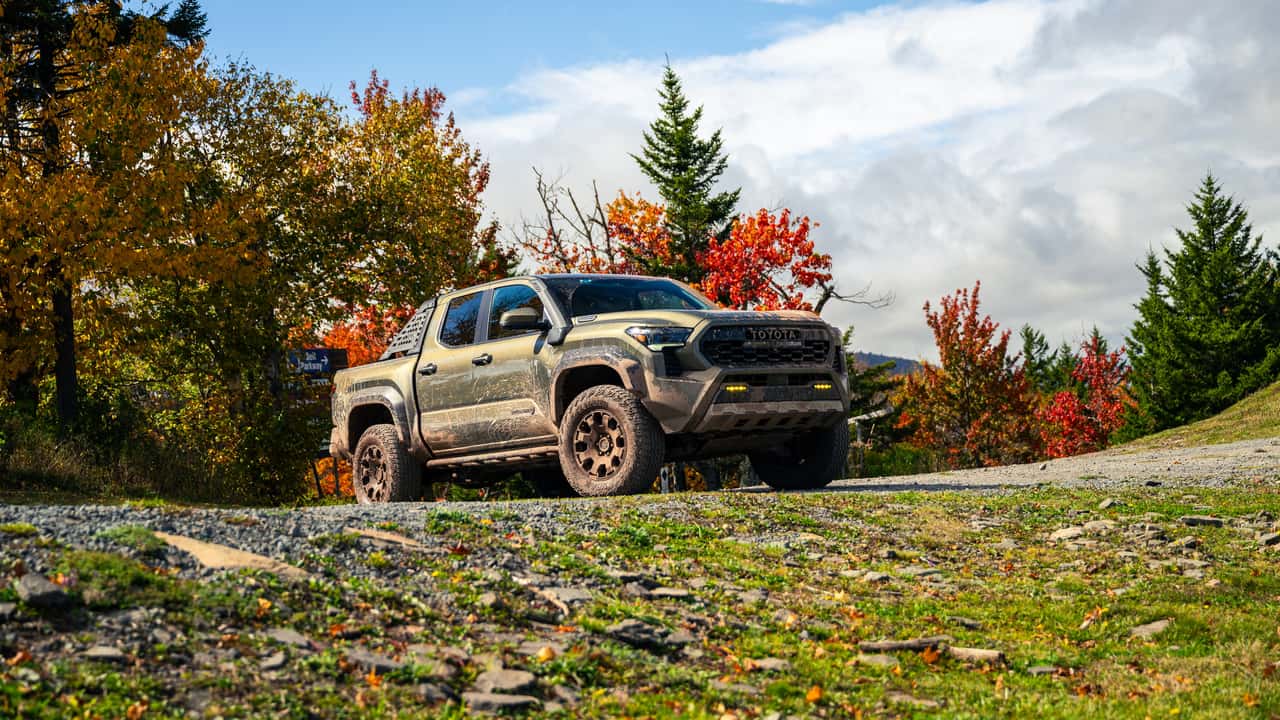
Andrew Link | Motor1
“To me, the Tacoma is for the person who wants to get to the trailhead, the person who wants to get to the off-the-grid campsite, or the really remote mountain biking trail. You’re off roading to somewhere with this,” says Kay. “Where the Colorado is for the person for whom off-roading is the activity in and of itself.”
This is also the only hybrid here, and Toyota’s done an excellent job of integrating its turbocharged 2.4-liter four-cylinder with an electric motor for near-instant torque all the time. The ZR2 is plenty torquey, with 410 pound-feet on tap, but the Trailhunter’s 465 pound-feet is available from an incredibly low 1,700 rpm. Toyota also has better cameras, which are easier to see on the Tacoma’s 14.0-inch center display, but the ZR2 might have the best camera view on any off-roader yet. There are front and rear cameras with their own built-in washer on the center differential, allowing an informative view of what’s going on underneath the truck, not around it. Everyone else needs to have this, like yesterday.
The Tacoma is really easy to drive off road.
I almost feel a little bad for the Ford in this particular test. Over Pucker Ridge, we needed to use both front and rear differential locks to get it over the obstacles, and later, it was the only truck we (I) got stuck. Admittedly, it was a very challenging bit. There’s a big mud splash, which we all hit at a decent speed for maximum drama, and then a steep uphill after the fact. You need to take a wide line up a right-hand bend with some speed to make it up the hill. I was up last, which meant that the hill was very slick. I took too tight a line up the hill and packed the tires with mud.
The only thing that does the trick is airing down the tires, and once we do, I get positioned and make it up the hill. It wasn’t too tough. Our instructor at NORA says it’s about half my fault, half the truck’s fault.
“I think that the Ford was the hardest to drive,” says Roselli. “It was very skittish and it wasn’t intuitive.”
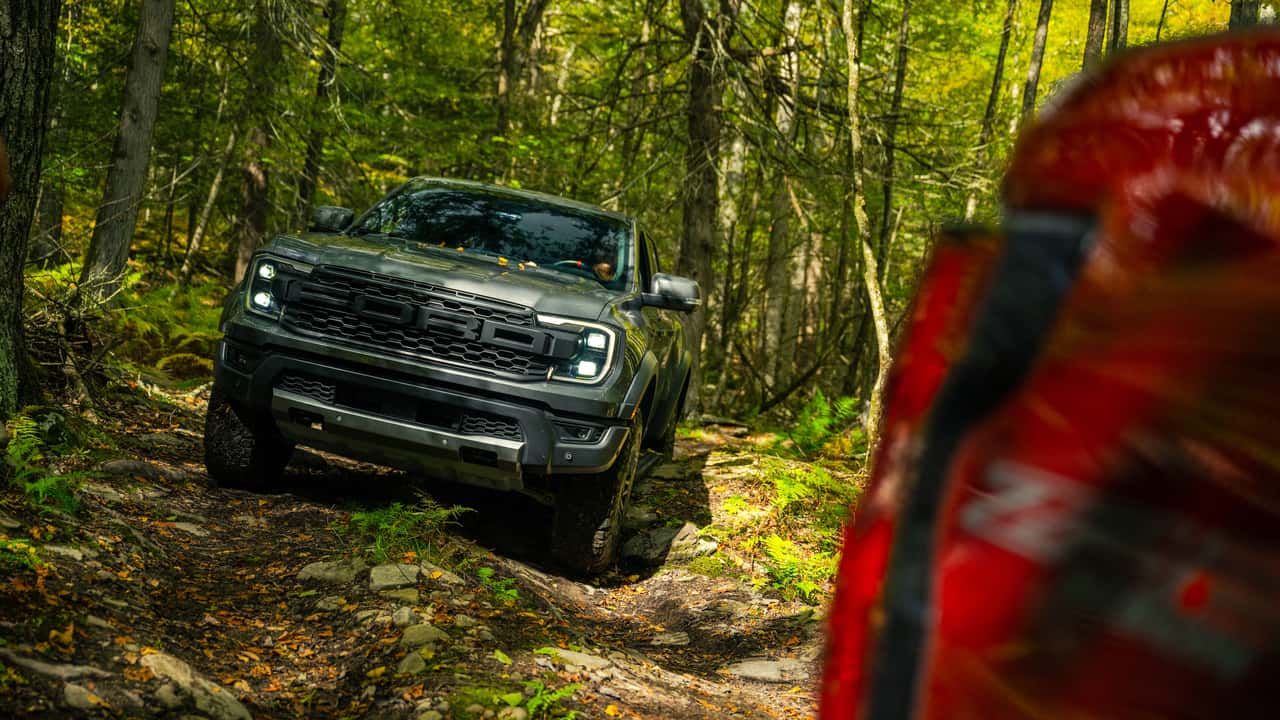
Andrew Link | Motor1
This thing does trail work well enough—it’s got the right approach and departure angles, good 33-inch tires, and a suite of off-roading traction systems plus locking diffs, but we had to use those diffs a lot. And eventually, we had to air down to get up a particularly muddy hill. Unlike the other two, the Raptor lacks real rock rails, too. Instead, you get some pretty tough metal sideboards, but these will scuff and scrape against rocks often. The user experience is the worst here too, with lots of controls relegated to the touch screen, including the two differential locks.
Still, there’s a lot to like. The throttle mapping is excellent, and it’s easy to drive this truck precisely at low speeds. Plus, the low-speed off-road cruise control system works very well and operates at higher speeds than Toyota’s Crawl Control. We liked the V-6, too, which sounds a hell of a lot nicer than its competitors’ four-cylinders, but the transmission came in for mixed reviews.
The Ford was the hardest to drive. It was very skittish and it wasn’t intuitive.
The Ranger has 10 speeds to the Chevy and Toyota’s eight. Super short gearing plus low range means you can do steep descents in 2nd or even 3rd without touching the brake pedal. But, the 1-2 upshift is almost always abrupt in the Ford, while it’s very well smoothed over in the others. Better to use manual mode.
In Ford’s defense, the Ranger Raptor is not a rock crawler. But you also can’t help but wonder why Ford hasn’t done something similar to Chevy and Toyota, partnering with an upfitter for some steel bumpers, underbody armor, and other goodies. It can’t be too expensive to develop, and like Chevy and Toyota, Ford could charge well over $60,000 for the truck. The Raptor would provide a great platform to build upon to reach even more off-roaders, many of whom don’t live within reasonable driving distance of a desert.
As much as the Catskills are an outdoor-activity paradise, it’s actually sports-car country too. You’ll find some of New York state’s better twisty roads up here, winding along rivers and up the mountains, so handling matters. Here, the Raptor quickly starts to earn back points, with its fun, sport-truck vibe.
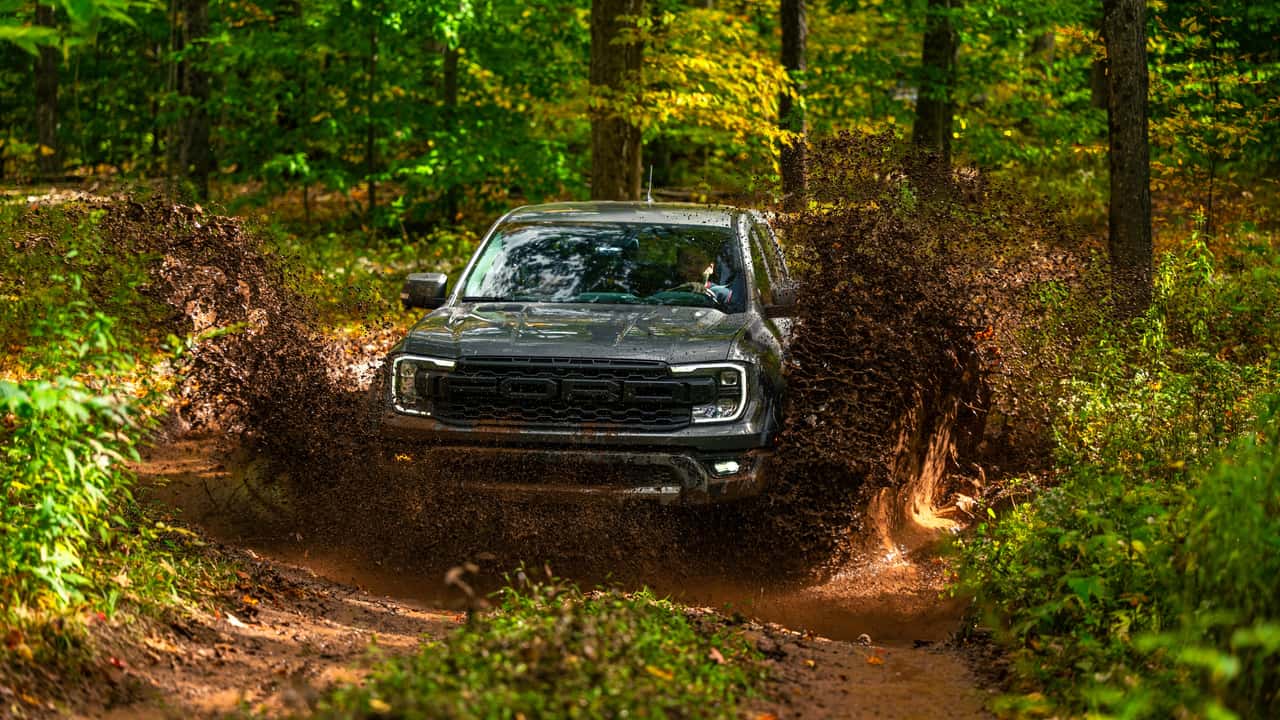
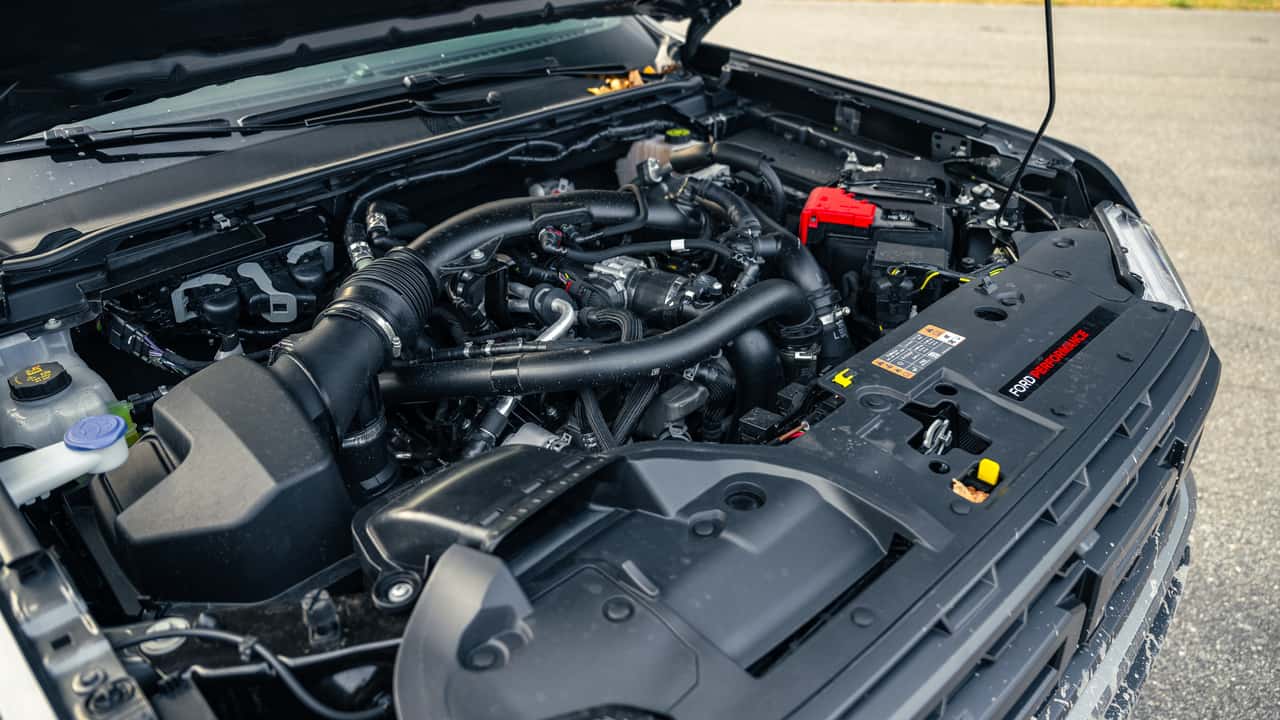
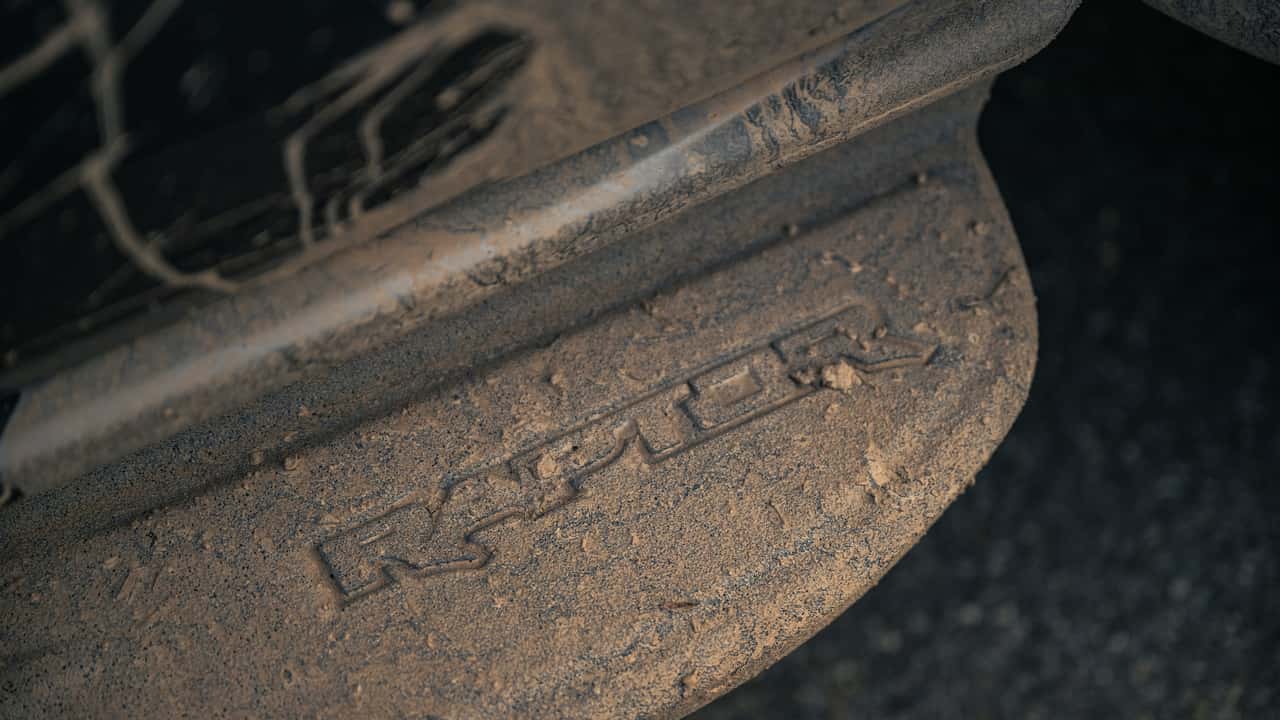
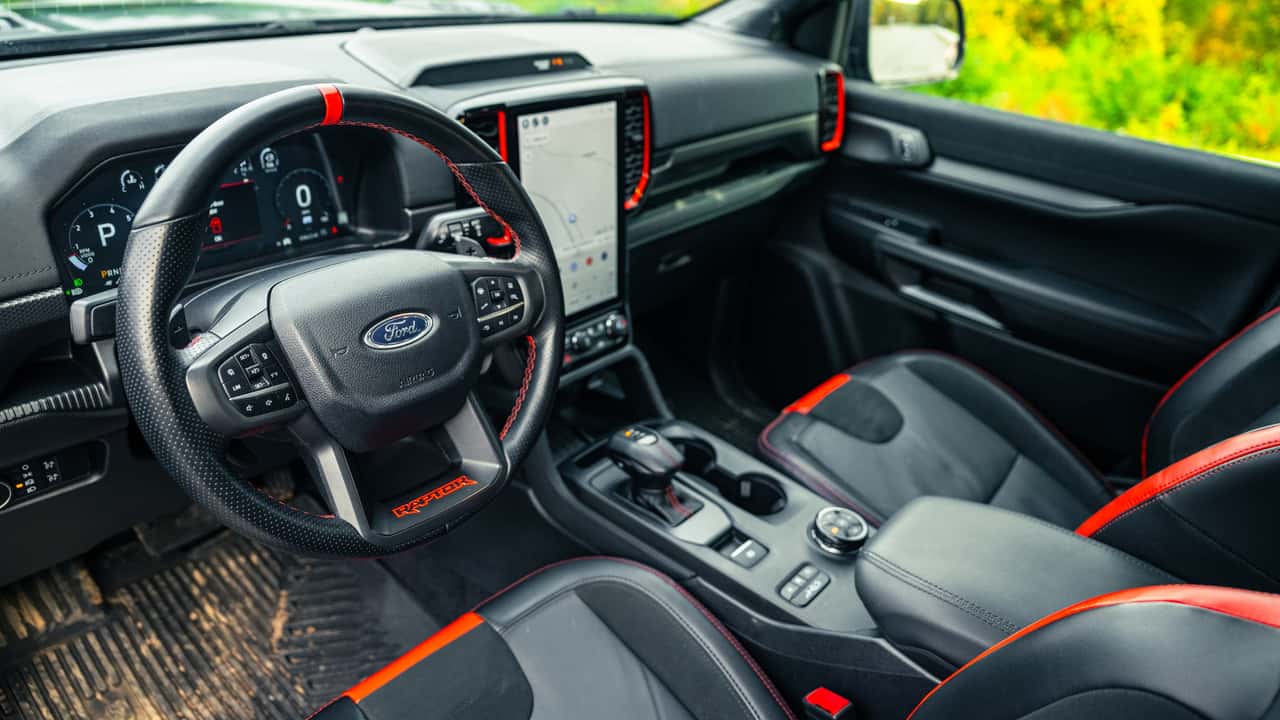
Andrew Link | Motor1
You get the typical soft ride we’ve come to love in other Raptors, plus some neat toys like paddle shifters, and adjustable steering, exhaust, and Fox Live Valve dampers. It’s actually quite a lot of fun to hustle this thing up a mountain road, and it’s surprisingly quick, too. I could see people buying it for this reason alone.
This is also the most subtle Raptor yet, and while most Raptor buyers might want more bombast, I think it has a lot of appeal as is. Other than the 33s, the letters “FORD” replacing the blue oval on the grille, and a couple of decals, it doesn’t look all that crazy. If you want the capability, but not the attention, finally, there’s a Raptor for you.
Out on the trails, it doesn’t take long to realize the ZR2 Bison is easily the most capable.
The Raptor’s lower hood means it has the best visibility of the trio, and everyone loved its cushy, yet well-bolstered seats and big metal shift paddles. Still, it feels the cheapest of the three on the inside, and the noisiest, with the most tire roar and exhaust drone.
Meanwhile, the Toyota’s interior is hard to fault in terms of quality or ease of use, though Roselli did chafe at its busy design, and noted that it has by far the smallest back seat of the three. You’ll struggle to get a child seat back there.
It also has the firmest ride on the road of the three, but I think that’s because Toyota is aiming this at overlanders who are going to load up the bed with hundreds of pounds of gear. Unladen, though, it’s pretty stiff, but like all the new Tacoma models, it handles surprisingly well. It has the lightest, quickest steering, which helps make it feel a bit more car-like, and the powertrain is the best here.
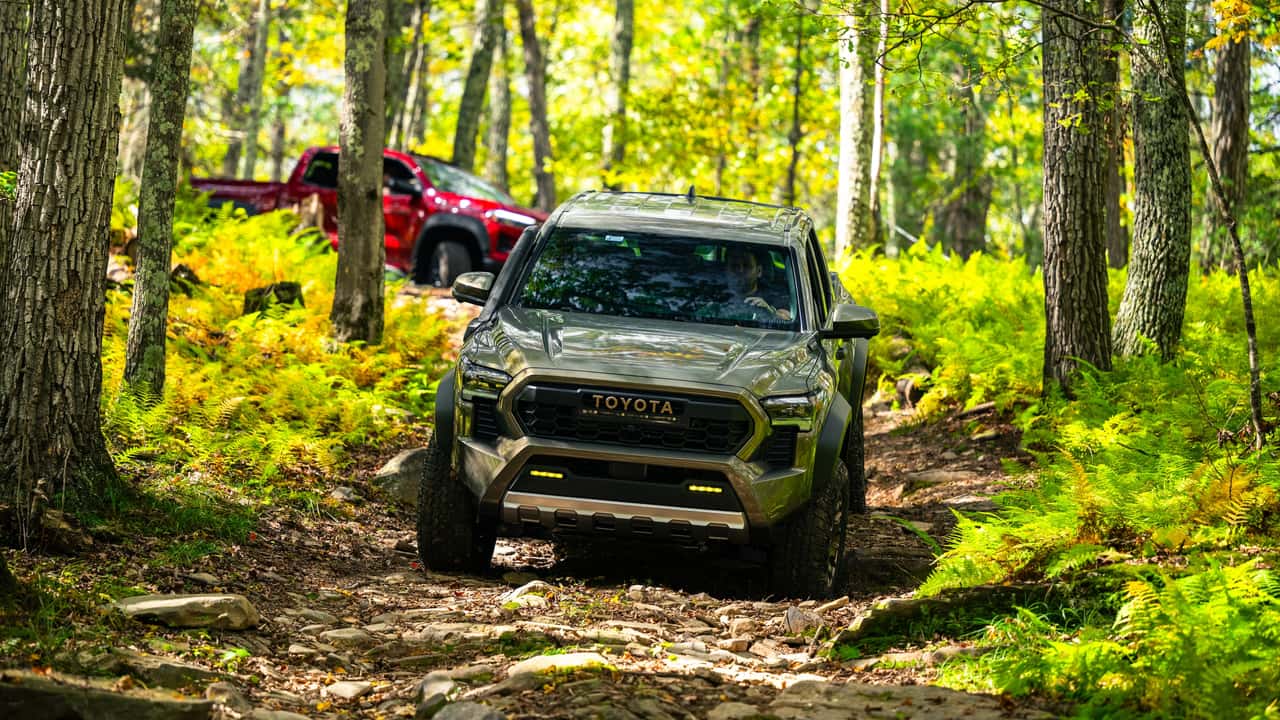
Andrew Link | Motor1
There’s just so much torque available instantaneously, you hardly stress the engine. On a two-mile run up a hill on a 55-mph road, I never revved the Toyota beyond 2,000 rpm. Plus, you get goofy turbo wooshes and blow-off valve chirps from the snorkel, which are comically loud with the window down. The center screen is maybe a bit too big, dominating the dashboard, but the infotainment system is brilliantly simple. The only tricky thing here is configuring the digital gauge cluster, which takes a few minutes of futzing around to figure out.
“If you need to fit a baby seat back there, that might be a dealbreaker,” says Kay of the Toyota, “but it also has all these small livability wins. The interior other than that back seat is great.”
While we all felt the Chevy was a little too reliant on its touchscreen, overall, it has a great interior. It feels just as high-quality as the Toyota’s, and it too has an easily operable infotainment system, complete with Google Maps and Waze built right in. (And GM products still have Apple CarPlay and Android Auto.) Visibility is tough, though, as the hood is tall and the 35-inch spare blocks almost the entire rear window. Infuriatingly, GM offers a wonderful rear-view camera system on other cars, but not this, the one that needs it most.
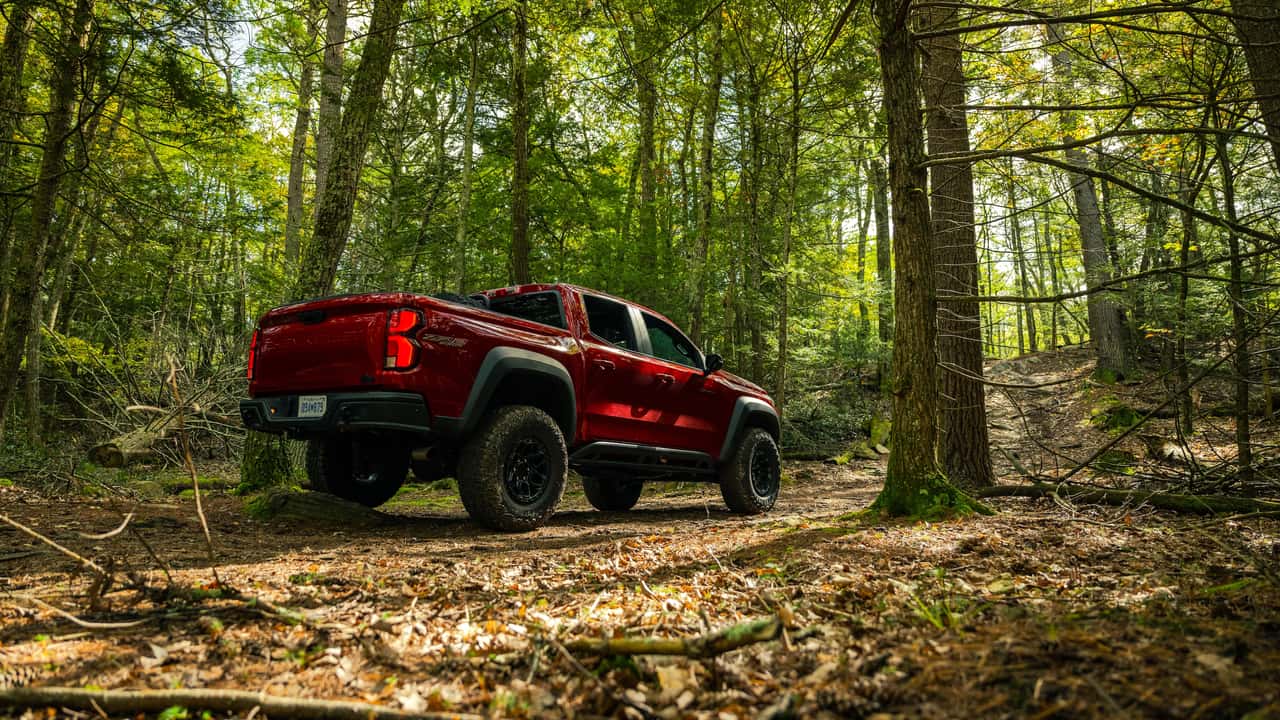
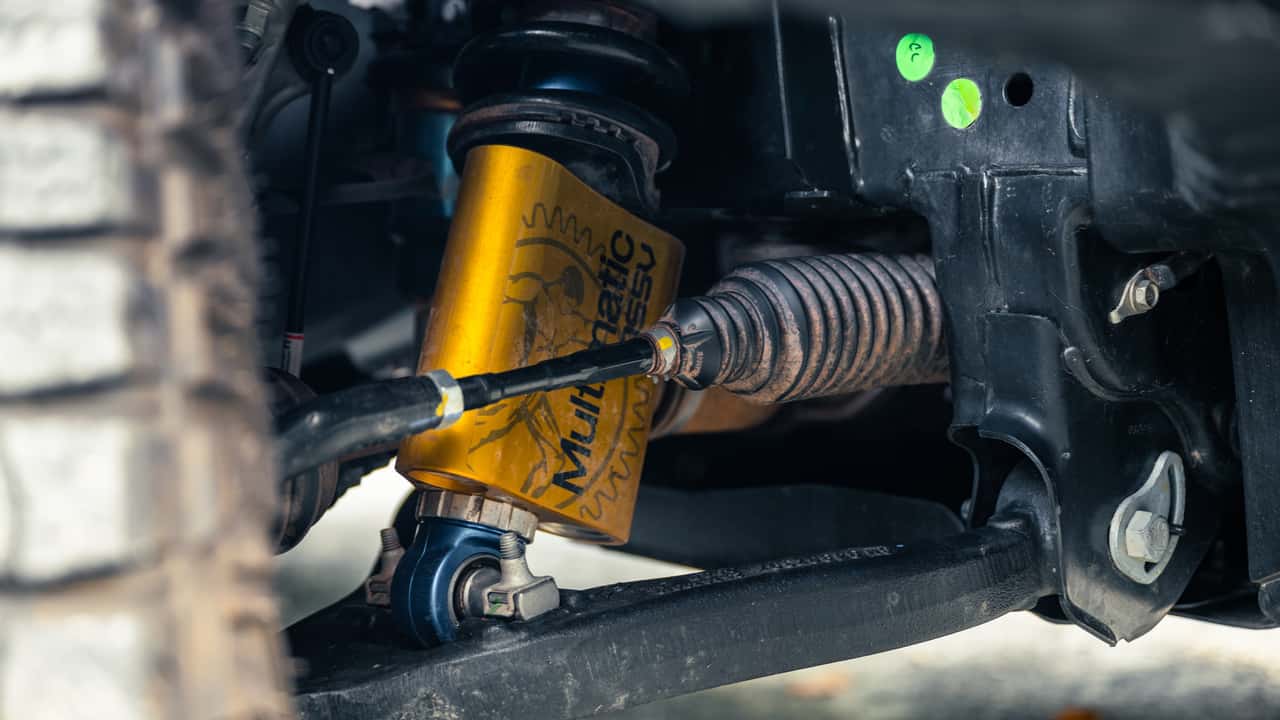
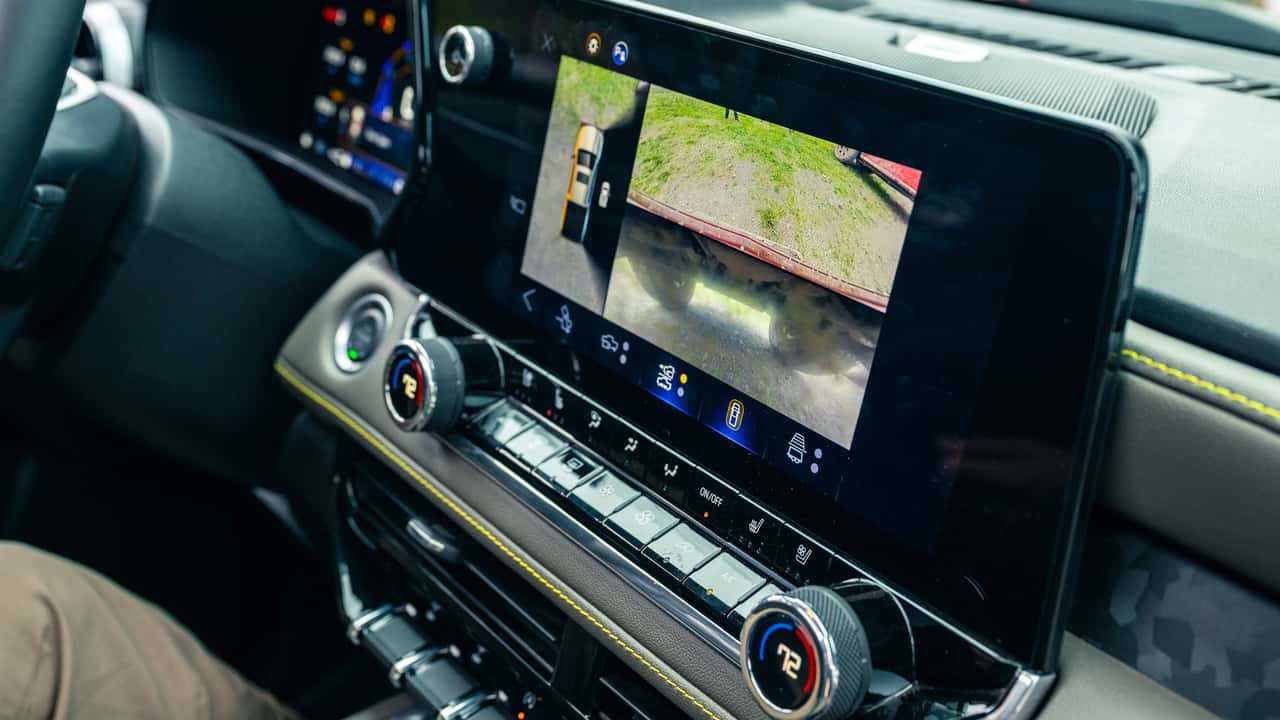
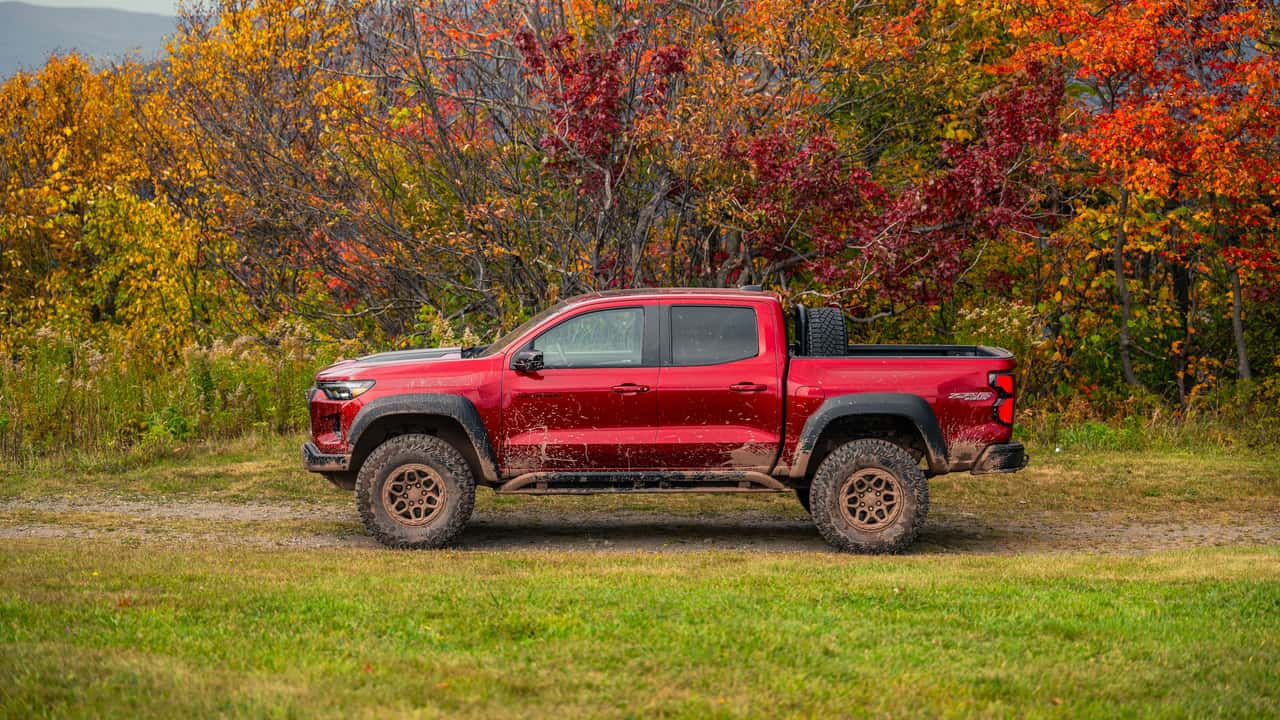
Andrew Link | Motor1
In a vacuum, the 2.7-liter four-cylinder and eight-speed automatic are good, but up against the Toyota and Ford, it lacks oomph and responsiveness. Yet, that’s the only problem with the way the Bison drives. Despite big, heavy 35s, the Bison has freakishly good ride and handling. Thank that fancy Multimatic suspension, which makes this pickup feel like… not a pickup.
The suspension has always been the party piece of the ZR2. Multimatic usually supplies these dampers to high-end performance and race cars, and they work genuine magic here. If this only had the powertrain responses of the Raptor or Trailhunter, we could say definitively that this is the best on the road.
The Chevy is shockingly quiet, too, with way less wind and tire noise than you’d expect. But, it lacks the advanced driver-assist features of the Toyota and Ford, both of which augment adaptive cruise control with steering assistance on the highway.
Though this is an off-road test, it still really matters how these trucks perform on road. That’s where they’ll spend most time, and for many buyers, these will be daily drivers. Practicality and livability are a big deal, and there’s no clear winner on the road. The Ranger has a sense of fun on pavement that the other two lack, plus a generally practical interior and a nice bed; The Toyota is probably the most practical overall, and it has the best powertrain for driving on road, yet the tiny rear seats are a huge drawback; The Chevy has the best ride and handling by far, and a nice interior, though you can’t ignore the huge spare tire in the bed, nor the comparative lack of grunt.
“There’s always little things that’ll piss somebody off about each one of these,” Associate Editor Anthony Alaniz says, neatly summing things up.
Off-road it’s easier to separate the three. At Hunter Mountain, there wasn’t a ton more to learn compared with the previous day on NORA’s trails—other than the fact that they all do good mud splashes—but the place did provide us an opportunity to reflect on the trio. (And, take more pretty pictures.)
The sheer brawn of the ZR2 Bison is hard not to love. It’s probably the most enthusiast-aimed off-roader here with the best hardware and a good traction-control system to make the most of it.
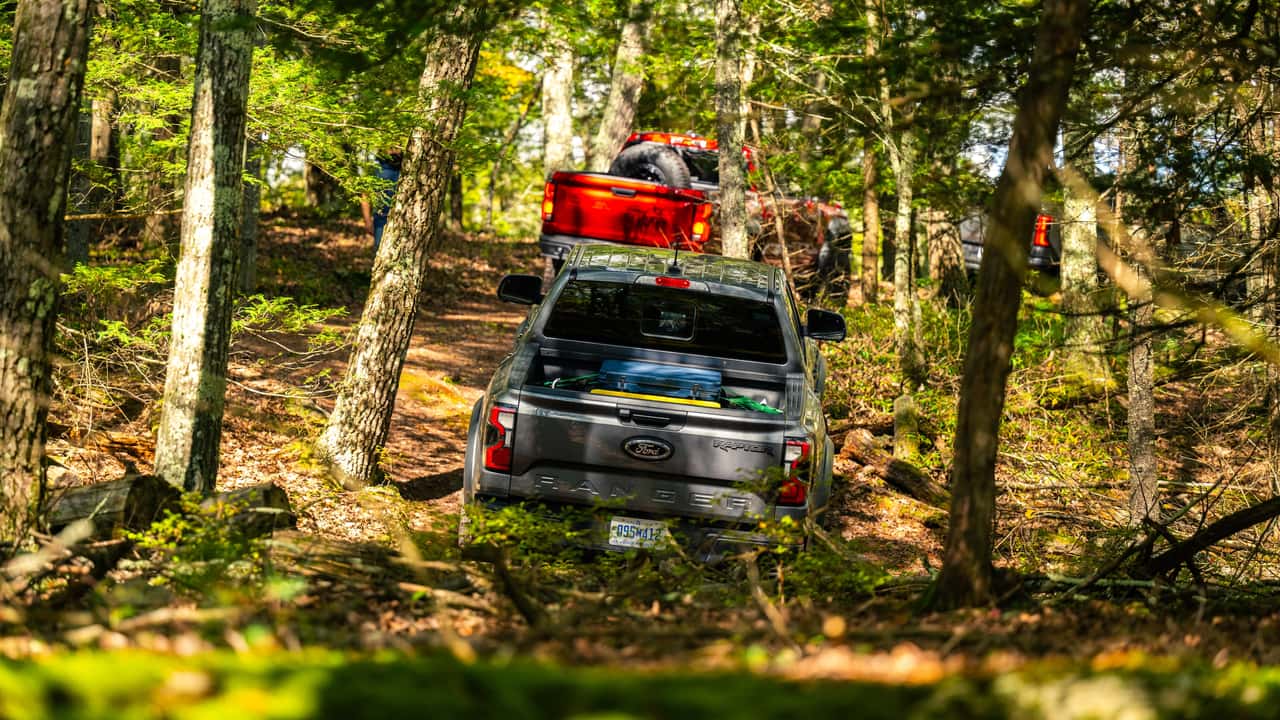
Andrew Link | Motor1
There’s a ton to like about the Toyota, too, and it feels precisely targeted at a specific buyer. This is the truck for the couple who loves to get out in nature, and simply wants the best tool for the job. It’s sort of what the Tacoma long has been, just with the capability ramped way up and a superb hybrid powertrain.
And even though the Ford was outmatched here in many ways, it’s still a deeply charming vehicle. It exists somewhere on the spectrum between the original F-150 Lightning and the other Raptors. And in terms of sheer practicality, it’s probably the best of this bunch, though Roselli prefers the extra lights, cubbies, and cameras in the Tacoma’s bed.
Each has its own use case, and each will appeal to different sorts of buyers. So, it’s futile to declare an overall winner. Myself and Roselli love the ZR2 for its absolute capability off and on road. Kay and Alaniz love the Toyota for its ease of use, and because it’s the truck best suited for facilitating outdoor adventures. And I still like the Ford as a street truck that can still handle itself off-road.
Even though they’re all around the same size, and cost within $5,000 of each other, these are remarkably different vehicles. If you’re in the market, you’ll have to weigh what’s important to you, and how you’ll use the rig.
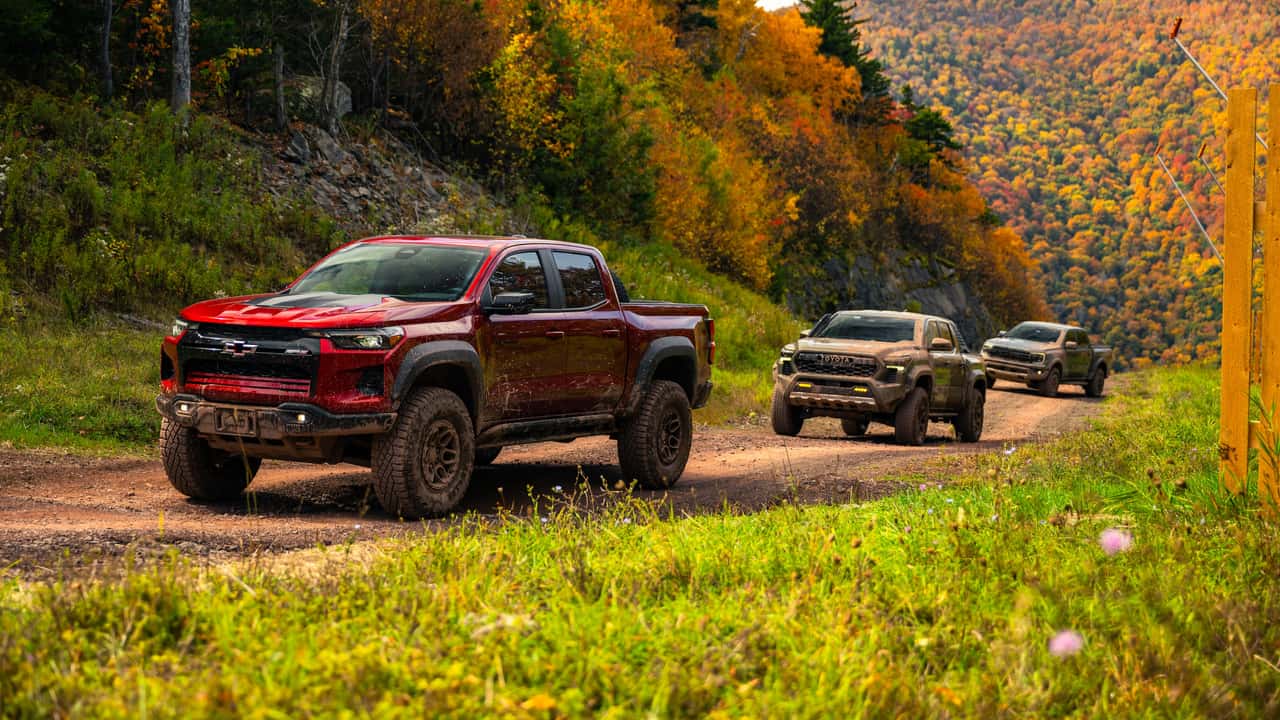
Andrew Link | Motor1
Admittedly, we could’ve done all of this with “lesser” versions of these trucks—a Tacoma TRD Off-Road, a Ranger Tremor, and a Colorado Trail Boss. But how could you not want one of these? There’s an undeniable cool about all of them—Roselli, the most avid off-roader and gear enthusiast of the group, has a shit-eating grin for the entire two days. These appeal to our innate desire to want the very best, even if its capabilities far exceed our own.
Where once this segment was nonexistent, now, mid-size off-road pickup buyers are spoiled for choice. And that’s a very good thing.
More Off-Road Adventures
It’s a Jeep Thing, and I Seek to Understand
The 2024 Lexus GX Kicks Ass
Get the best news, reviews, columns, and more delivered straight to your inbox, daily.
Sign up For more information, read our
Privacy Policy and Terms of Use.
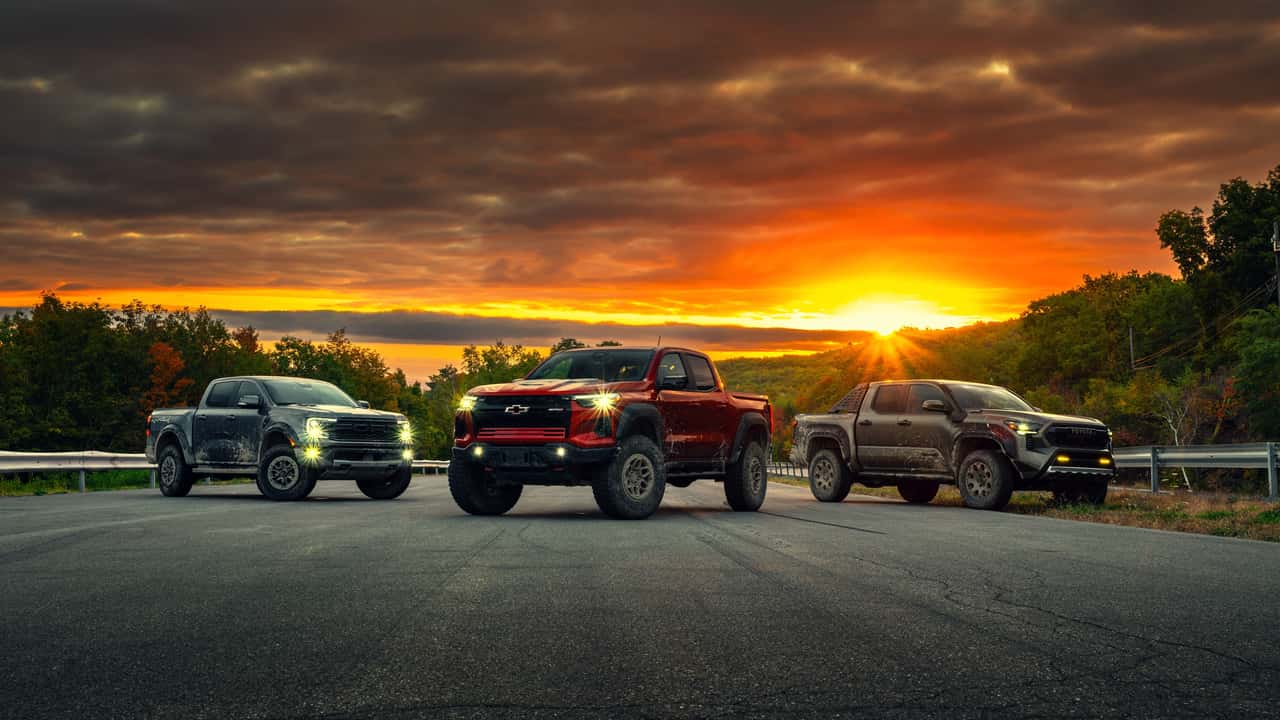
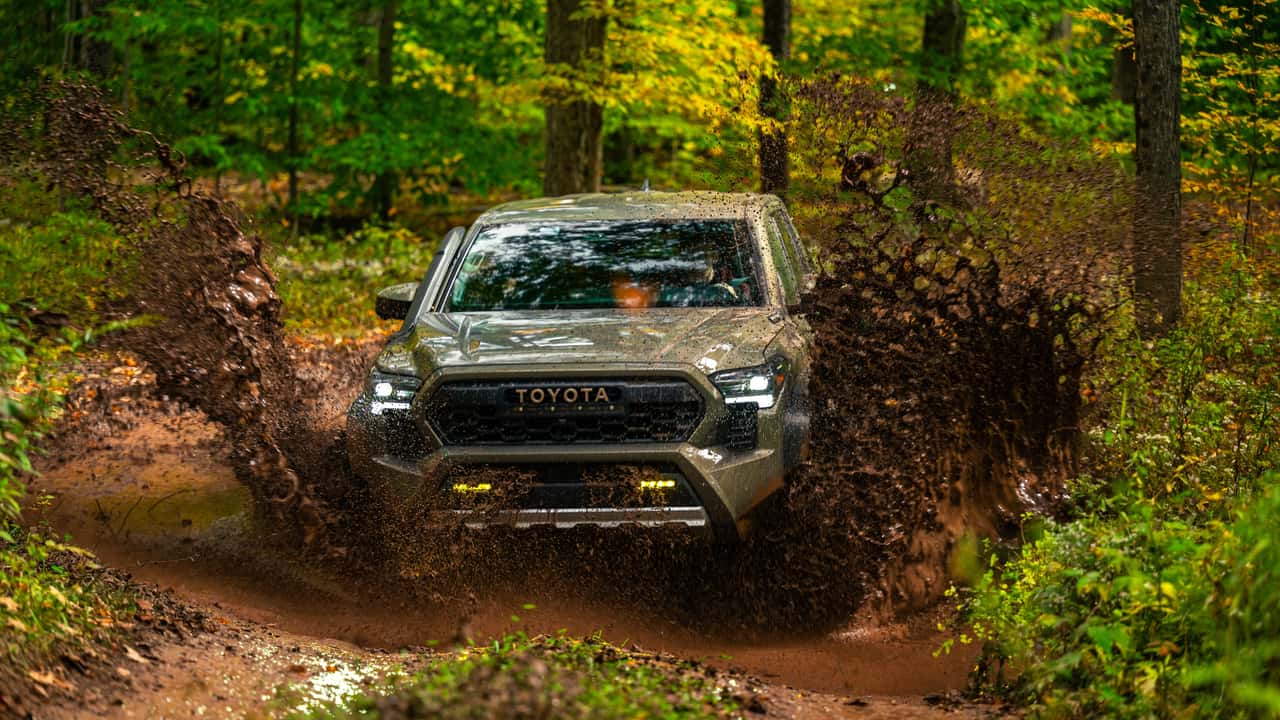
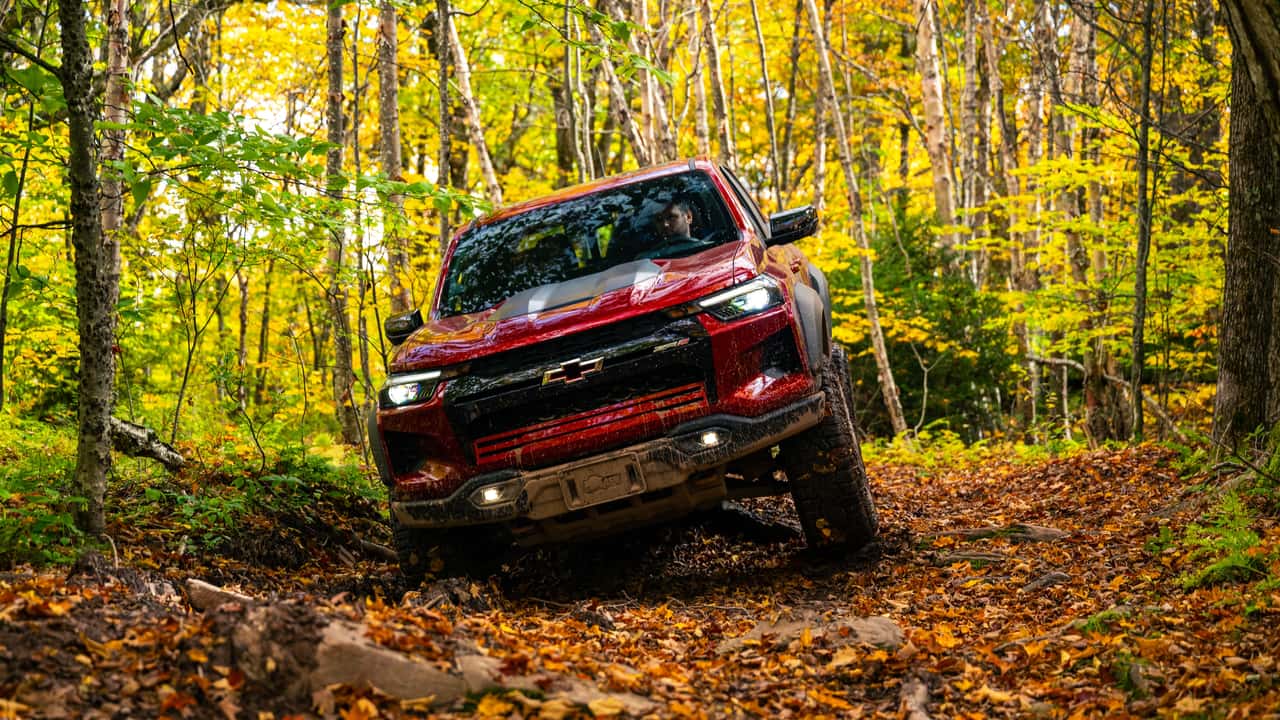
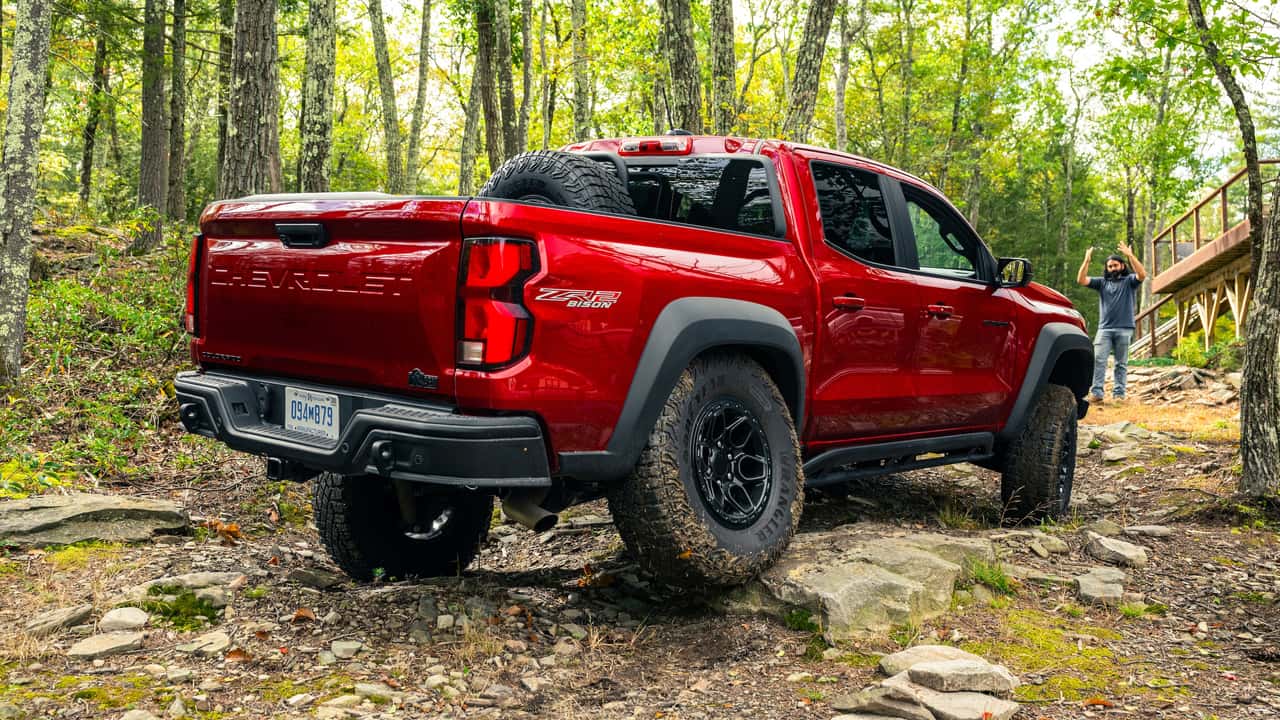
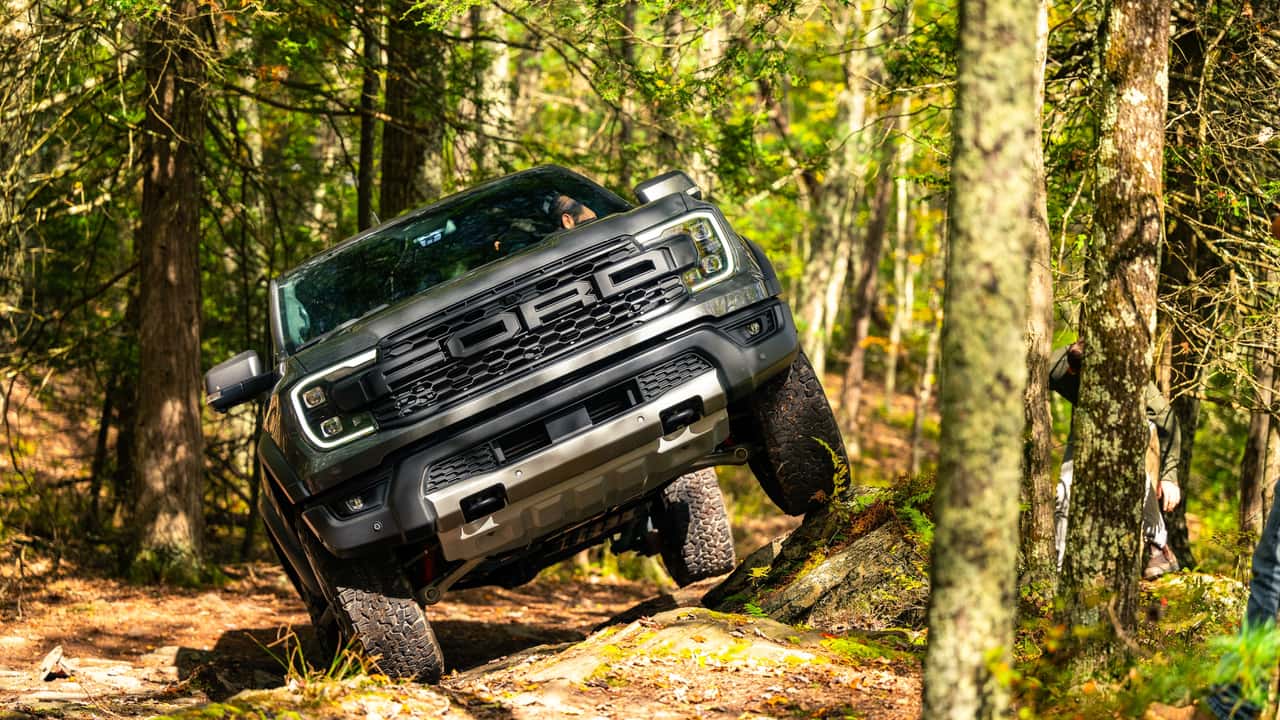
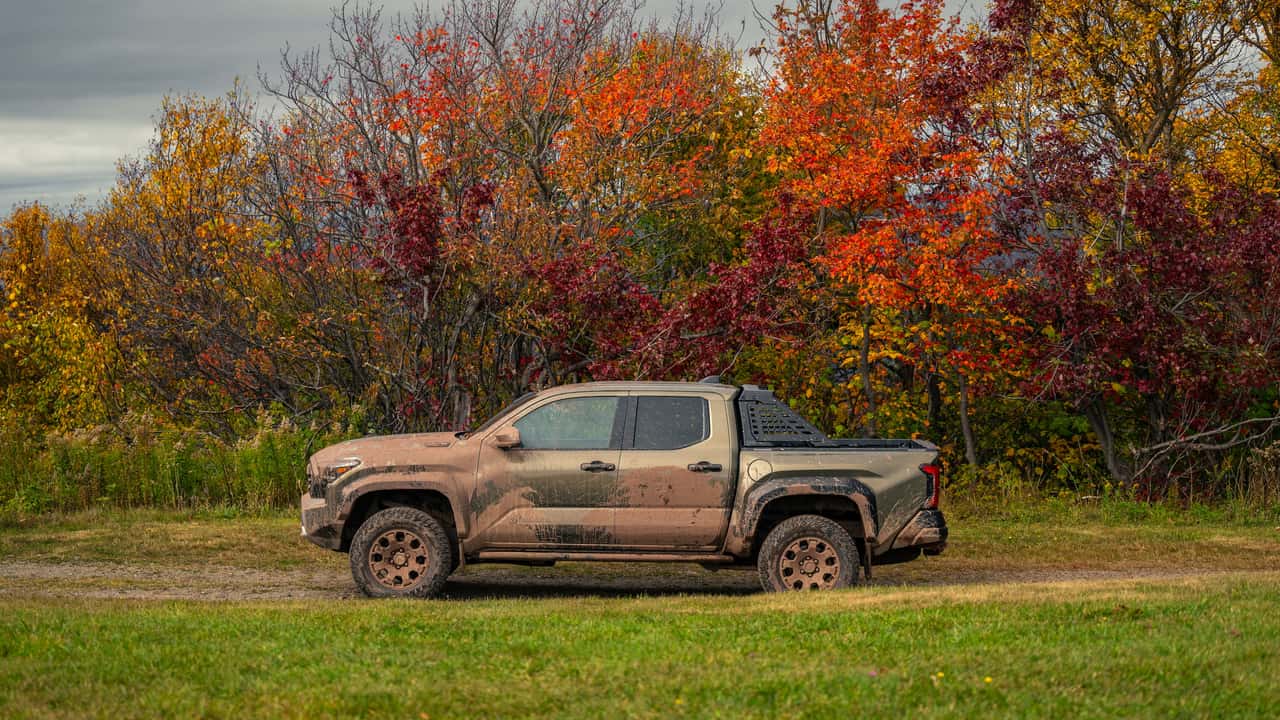
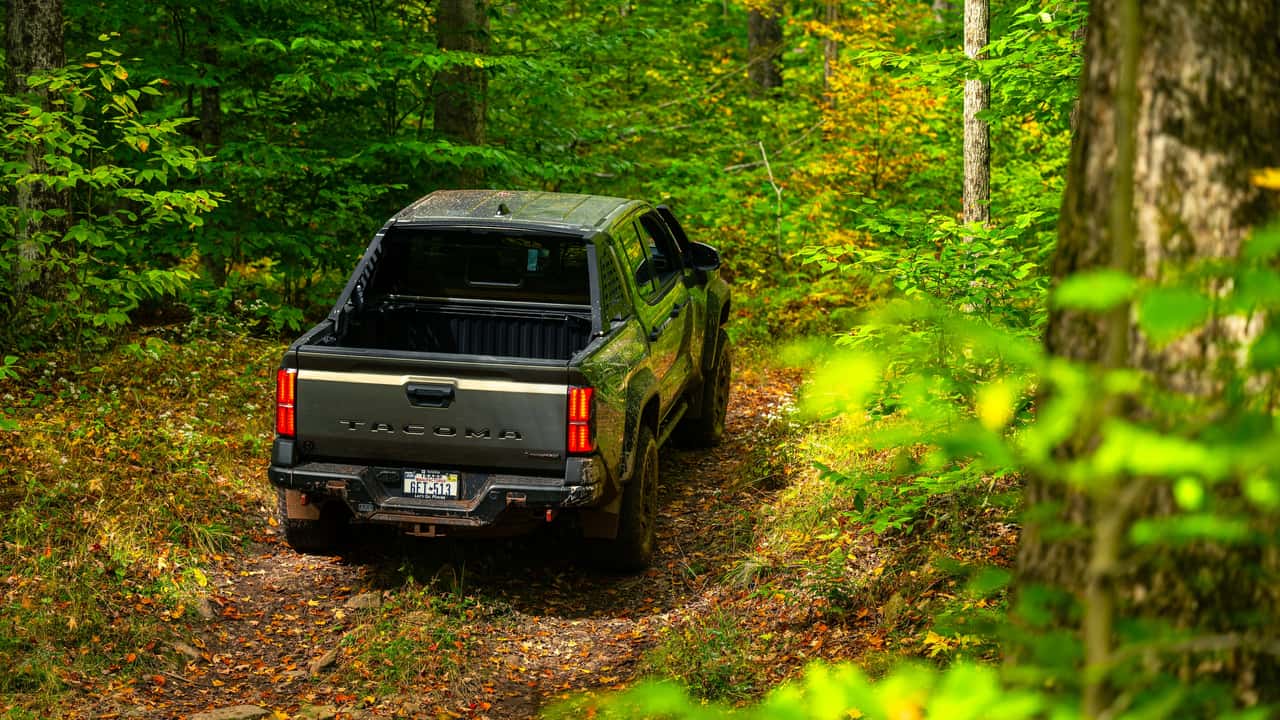
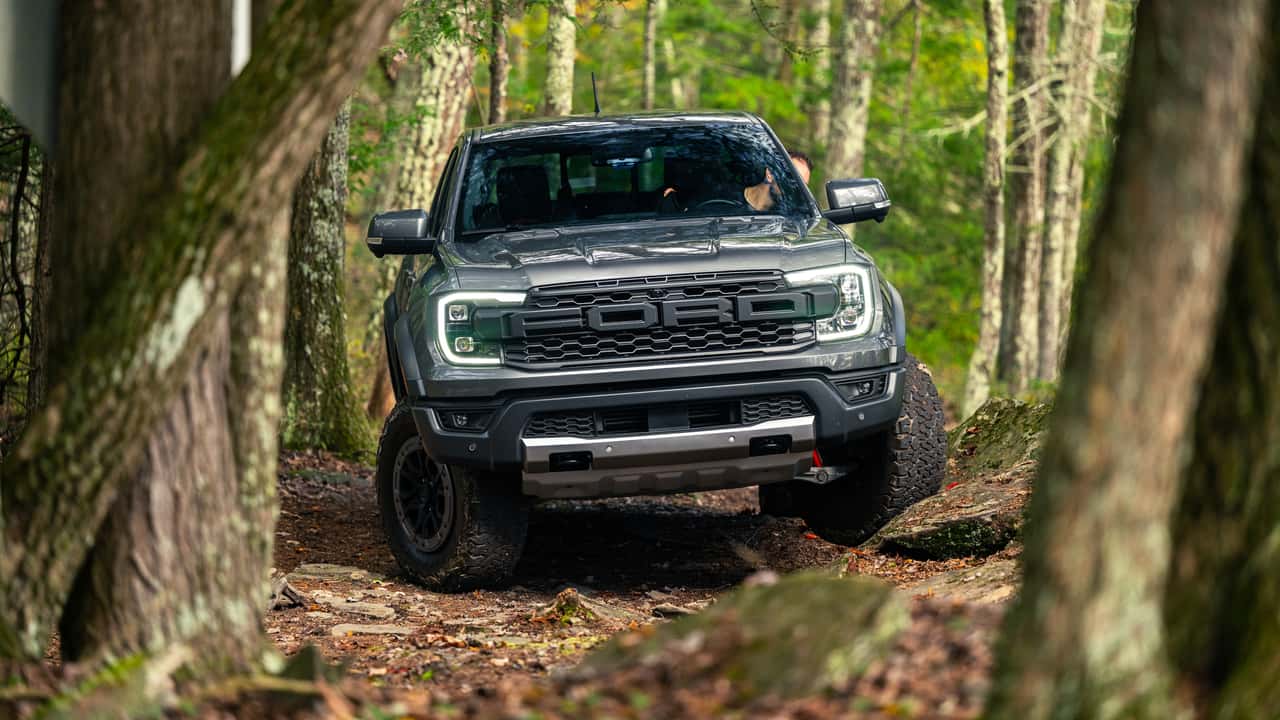
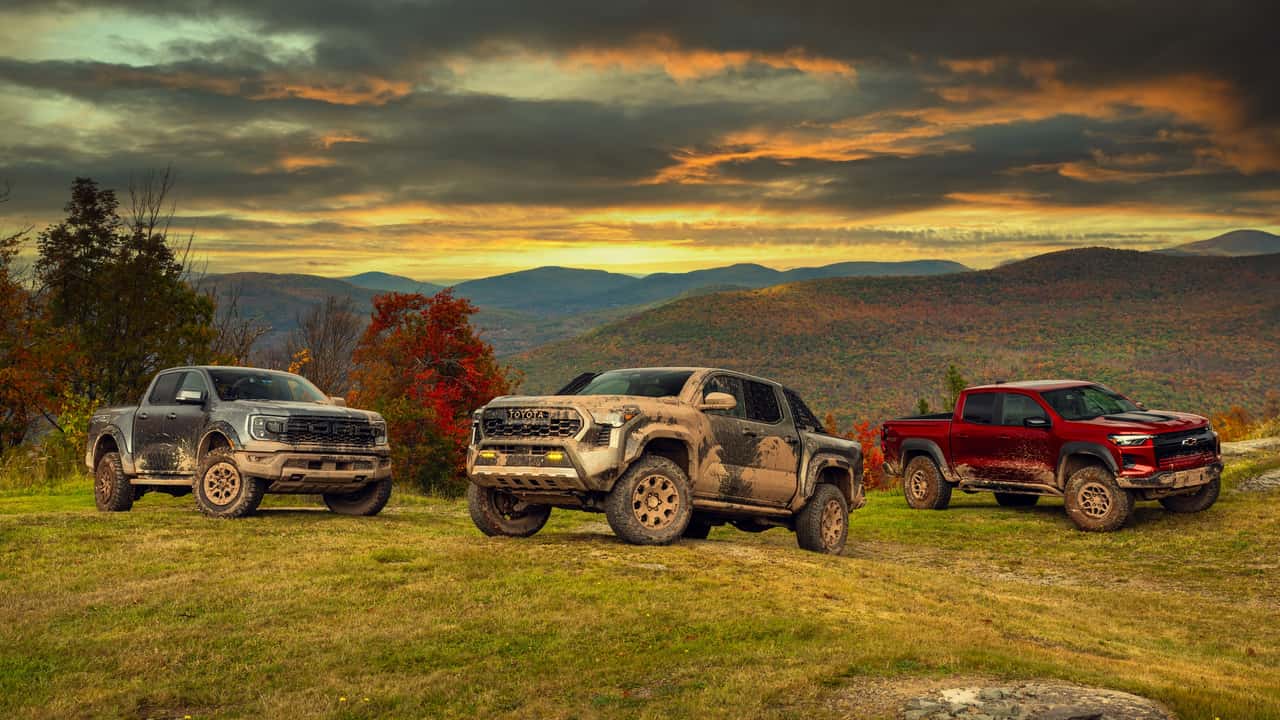
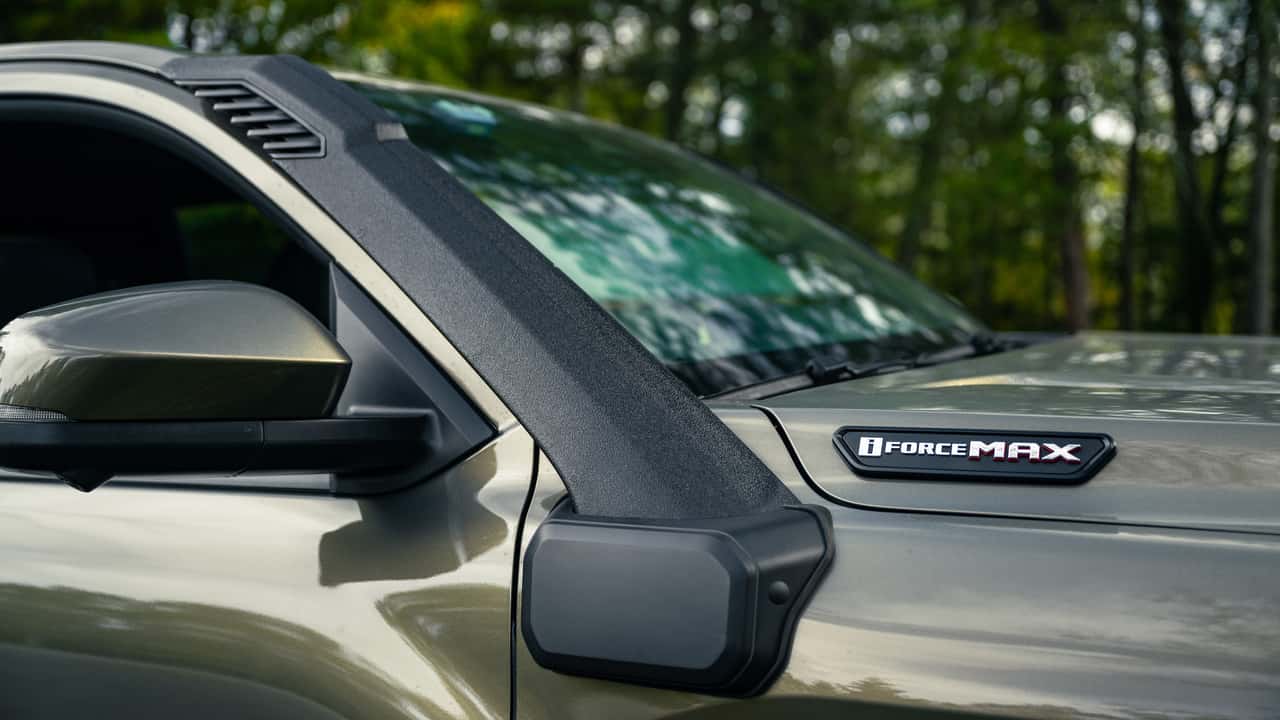
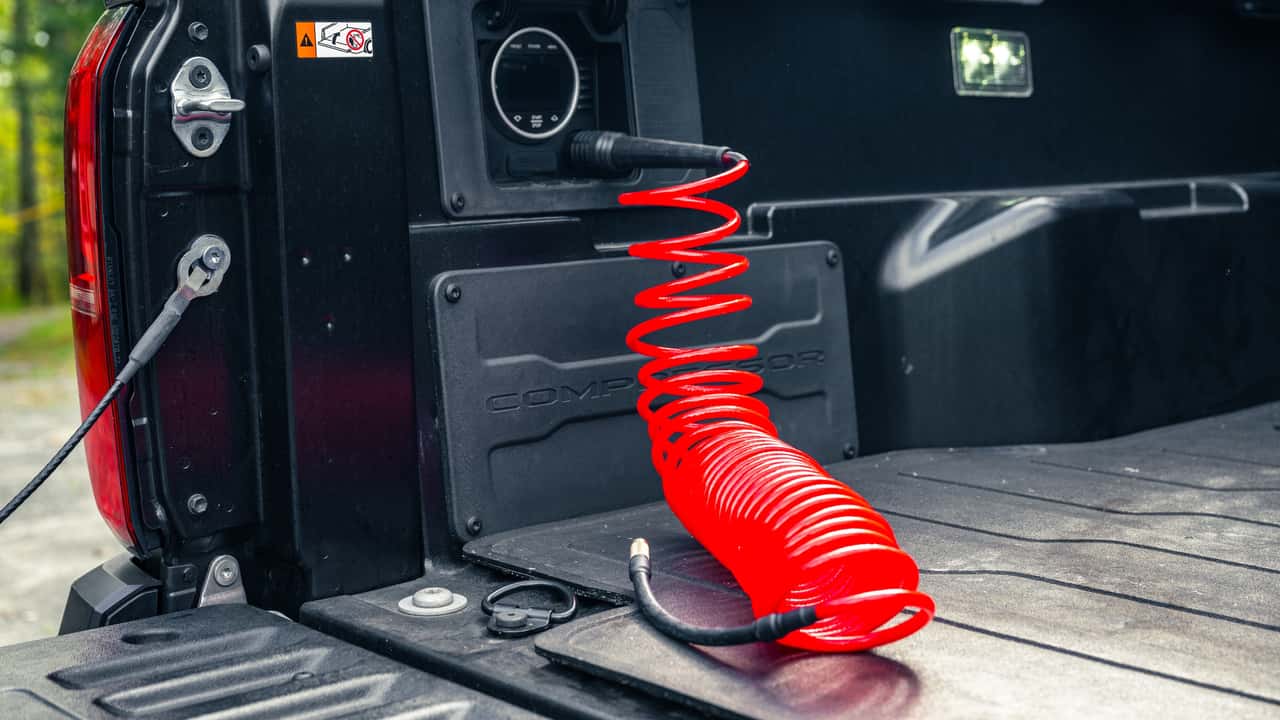
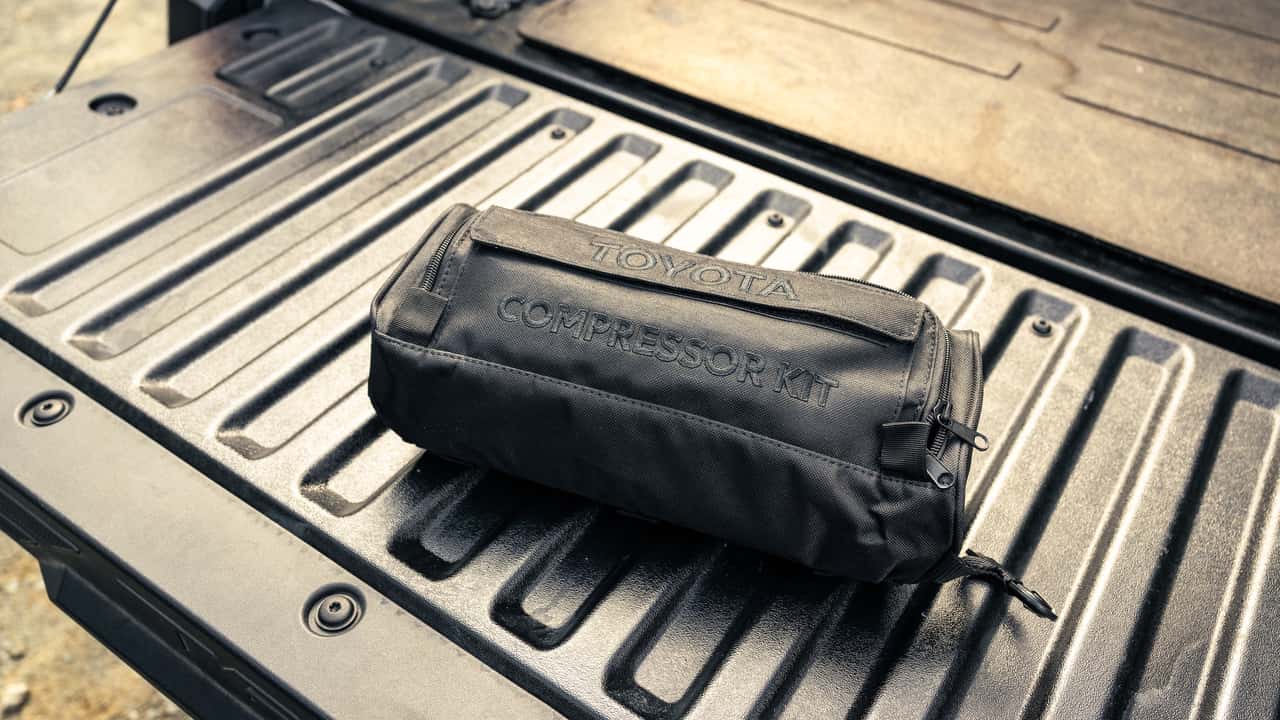
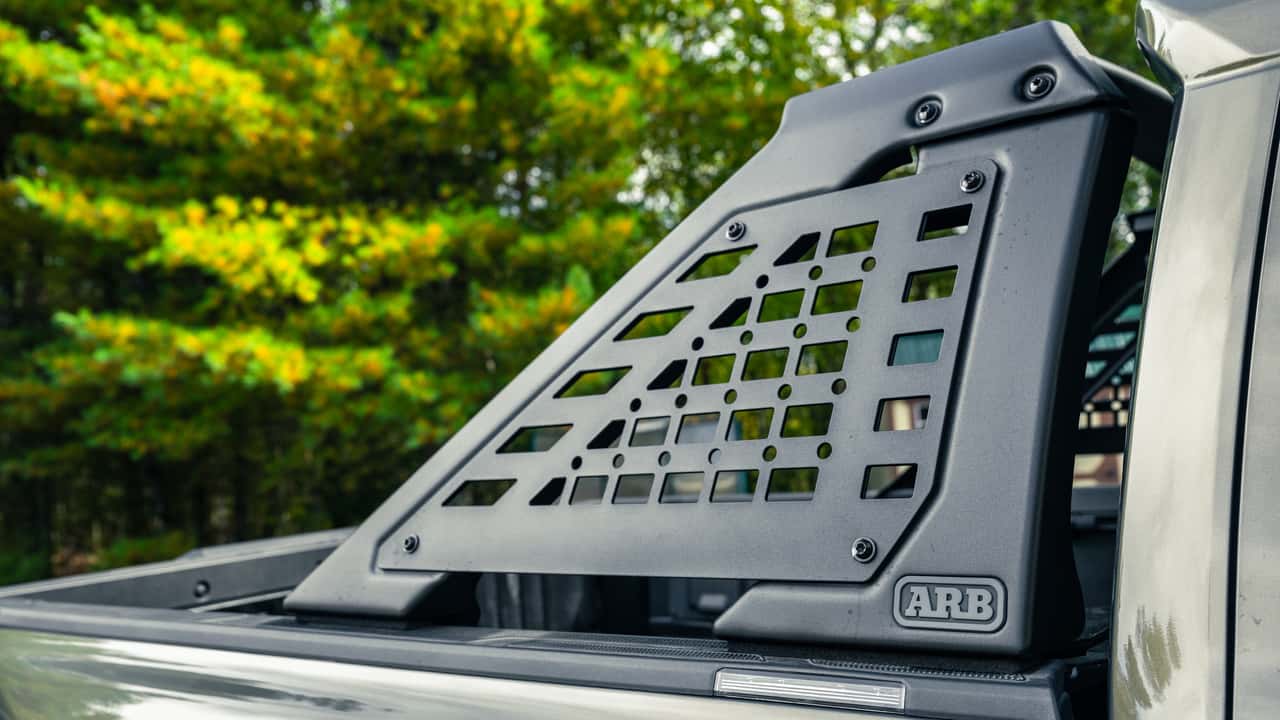
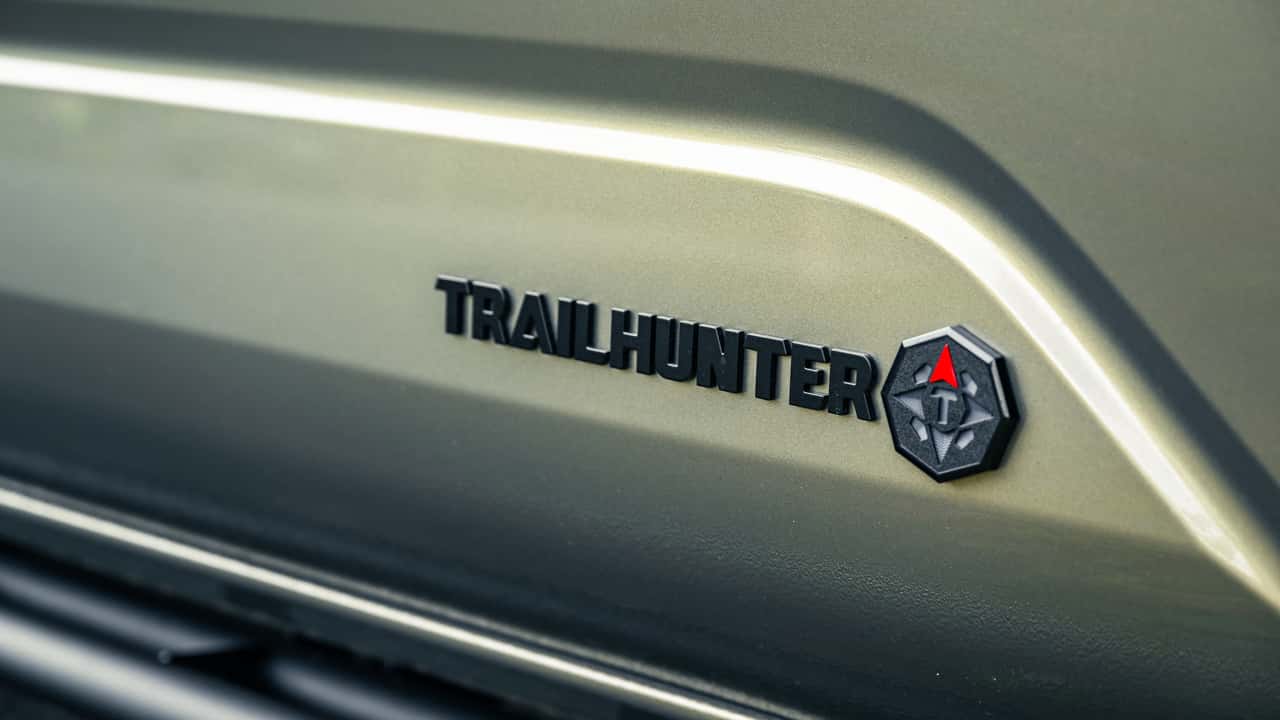
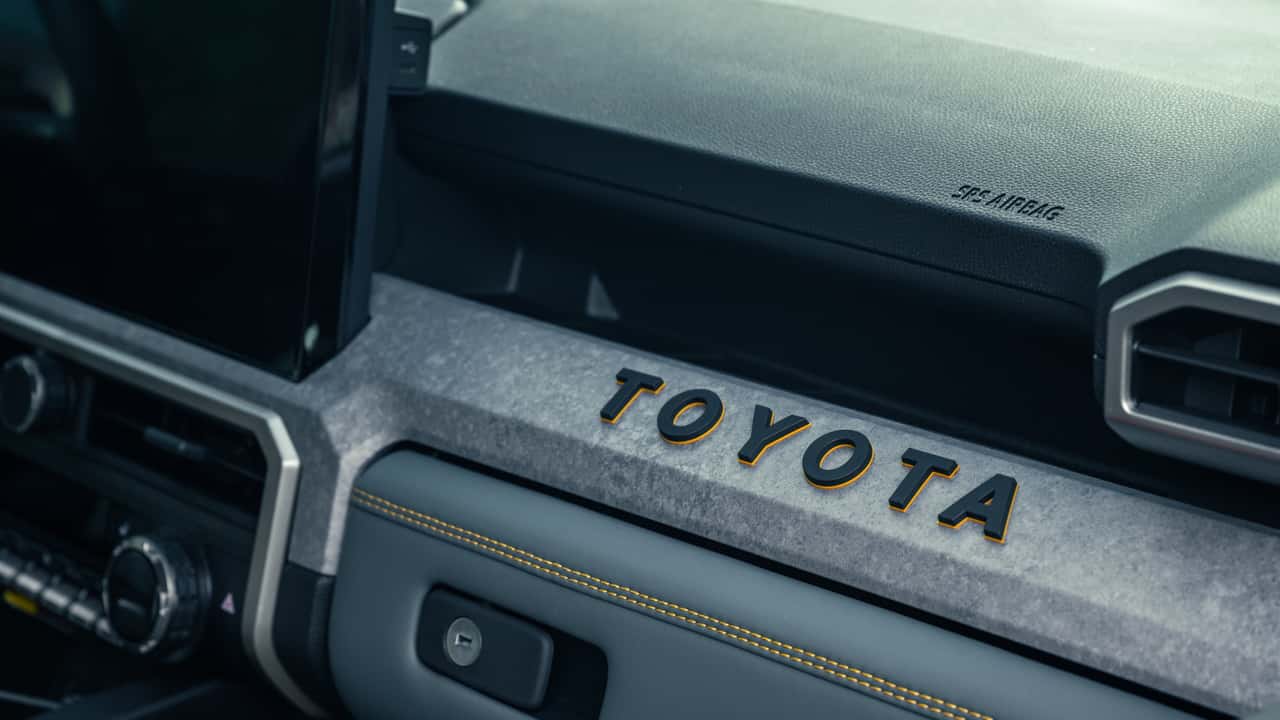
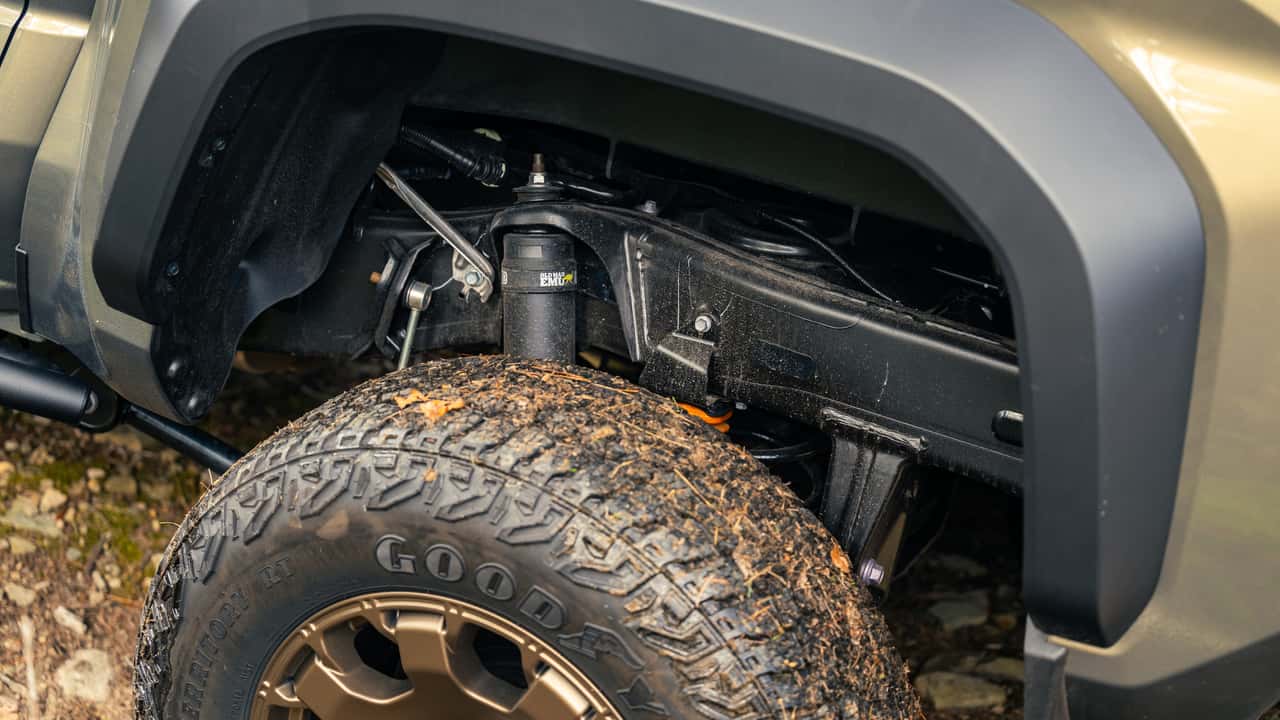
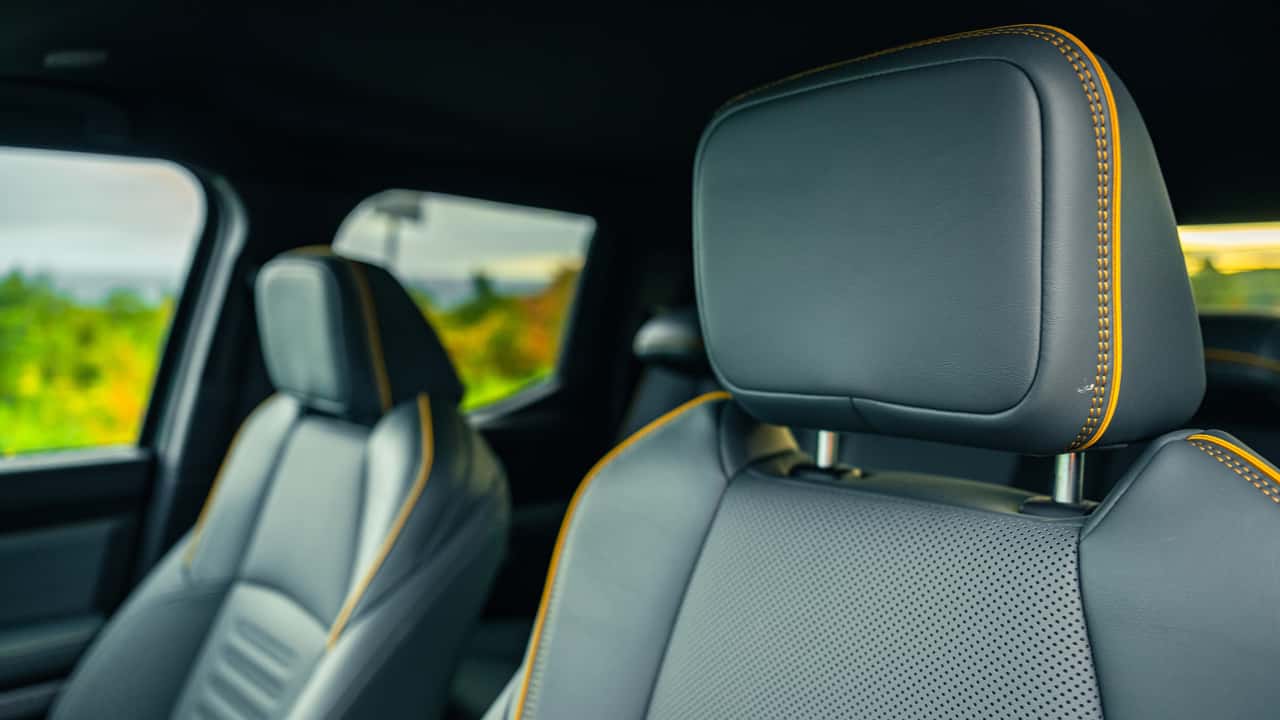
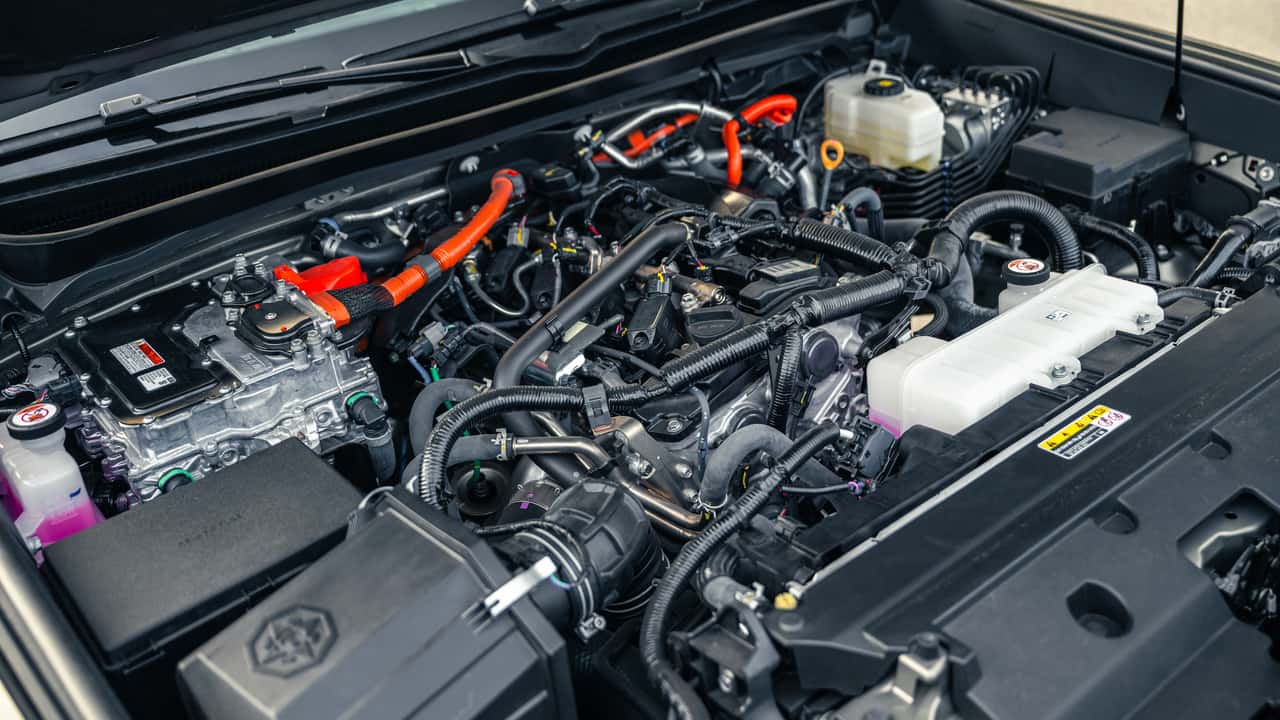
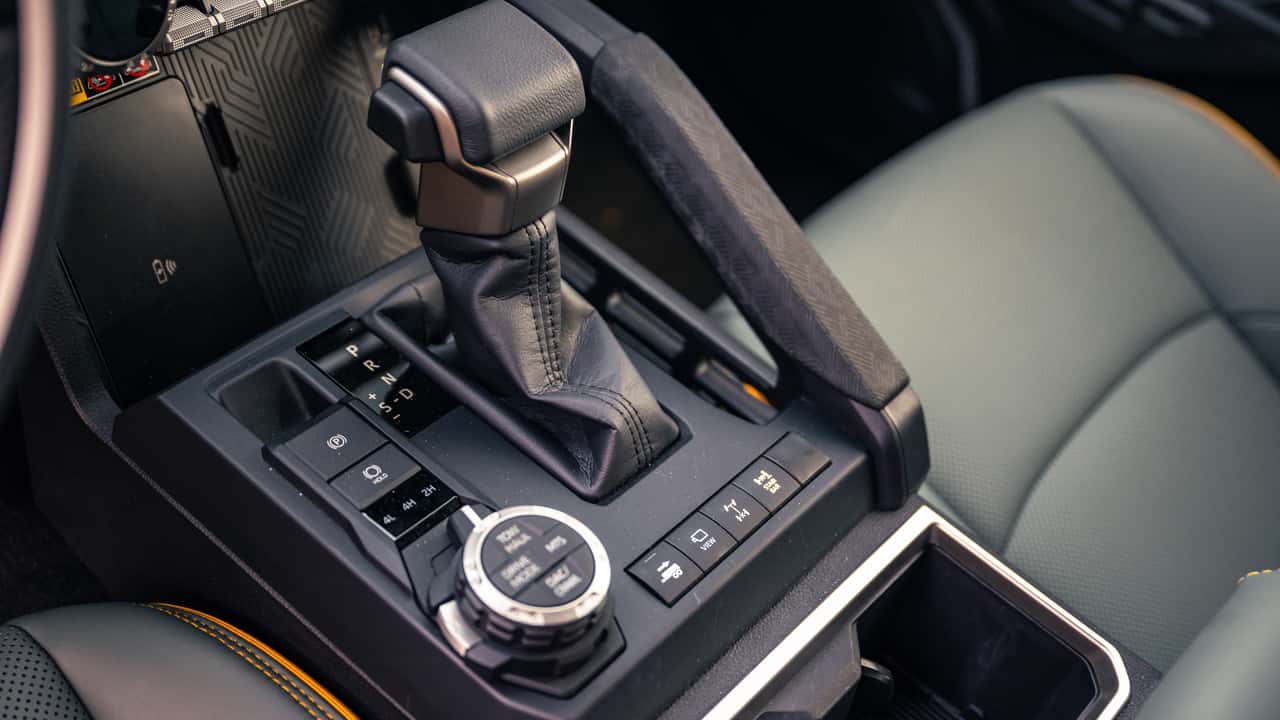
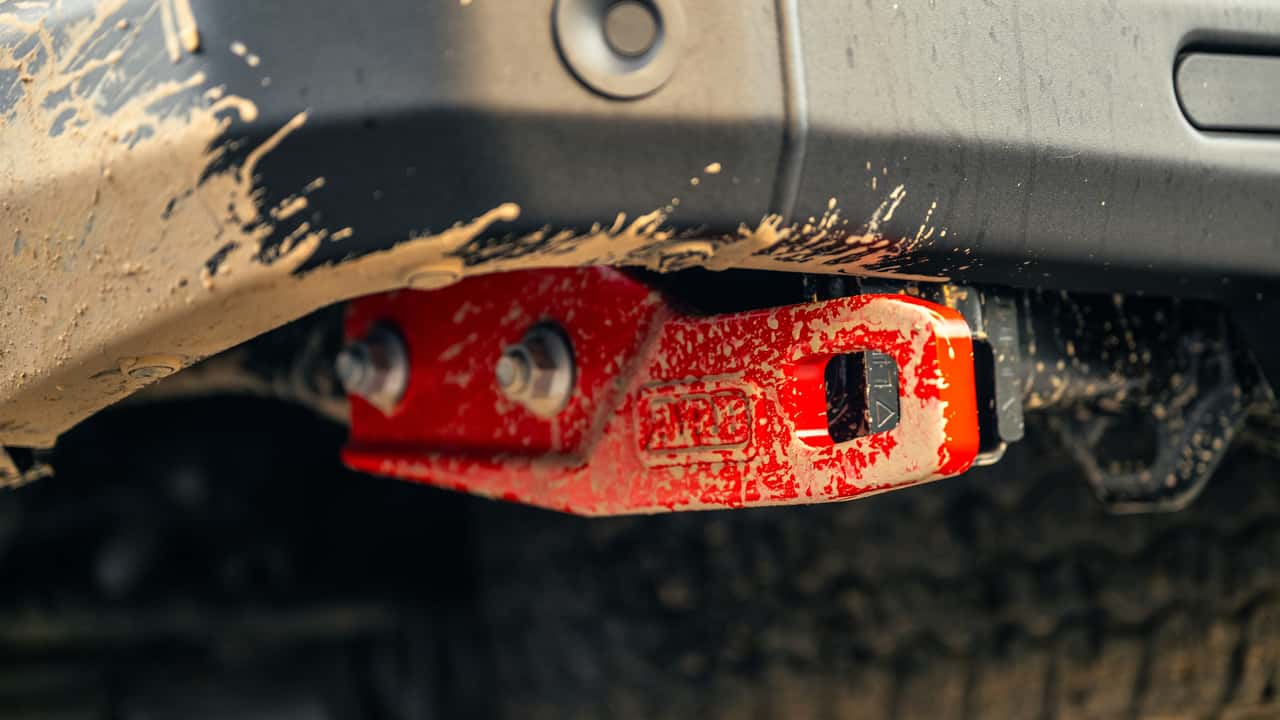
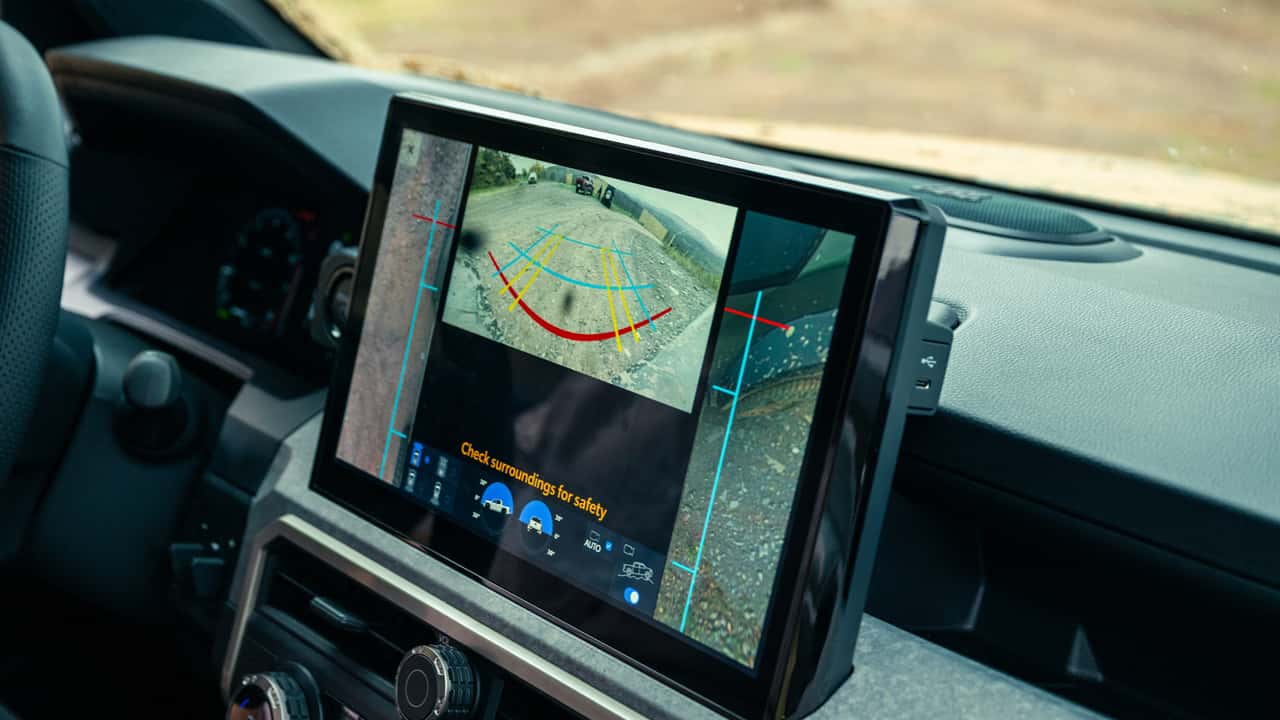
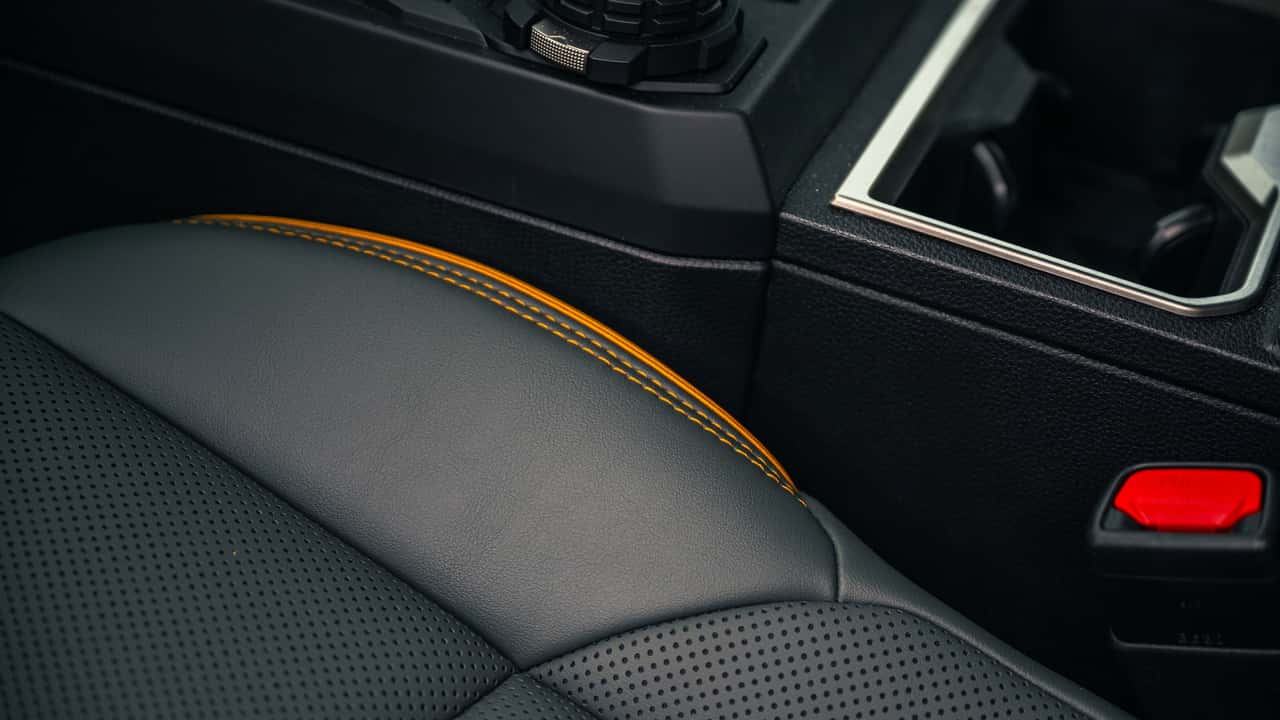
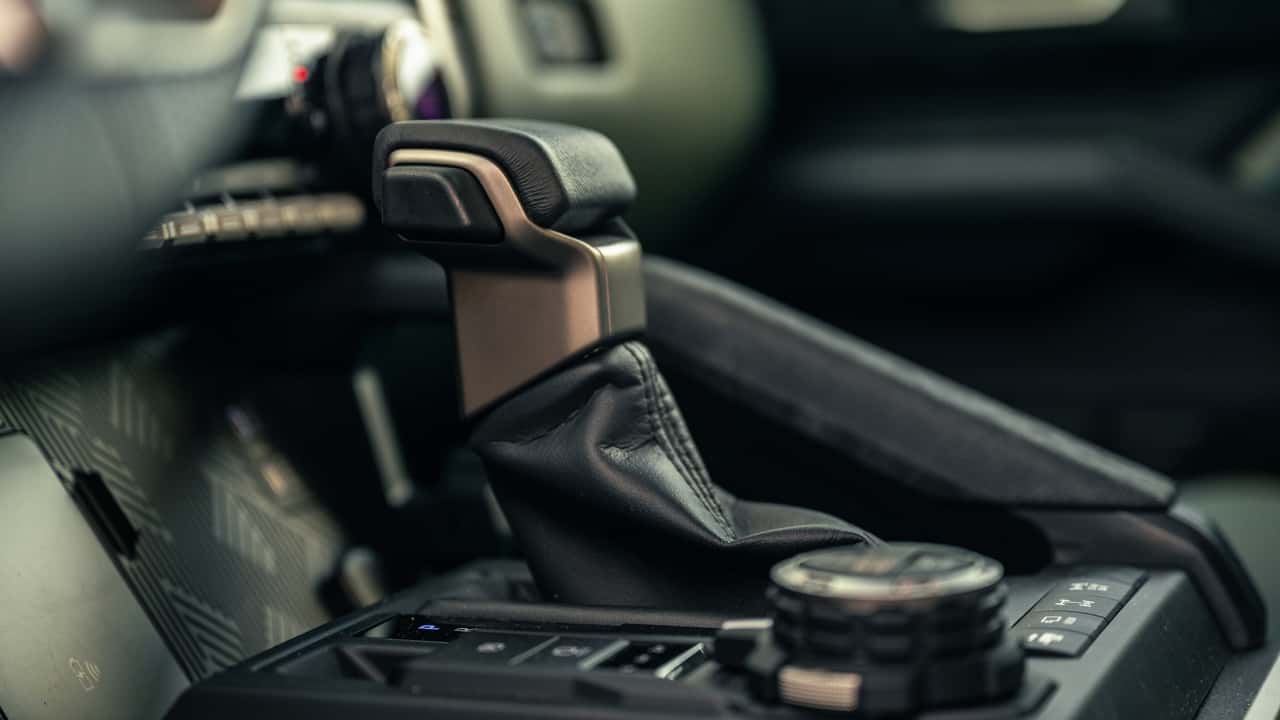
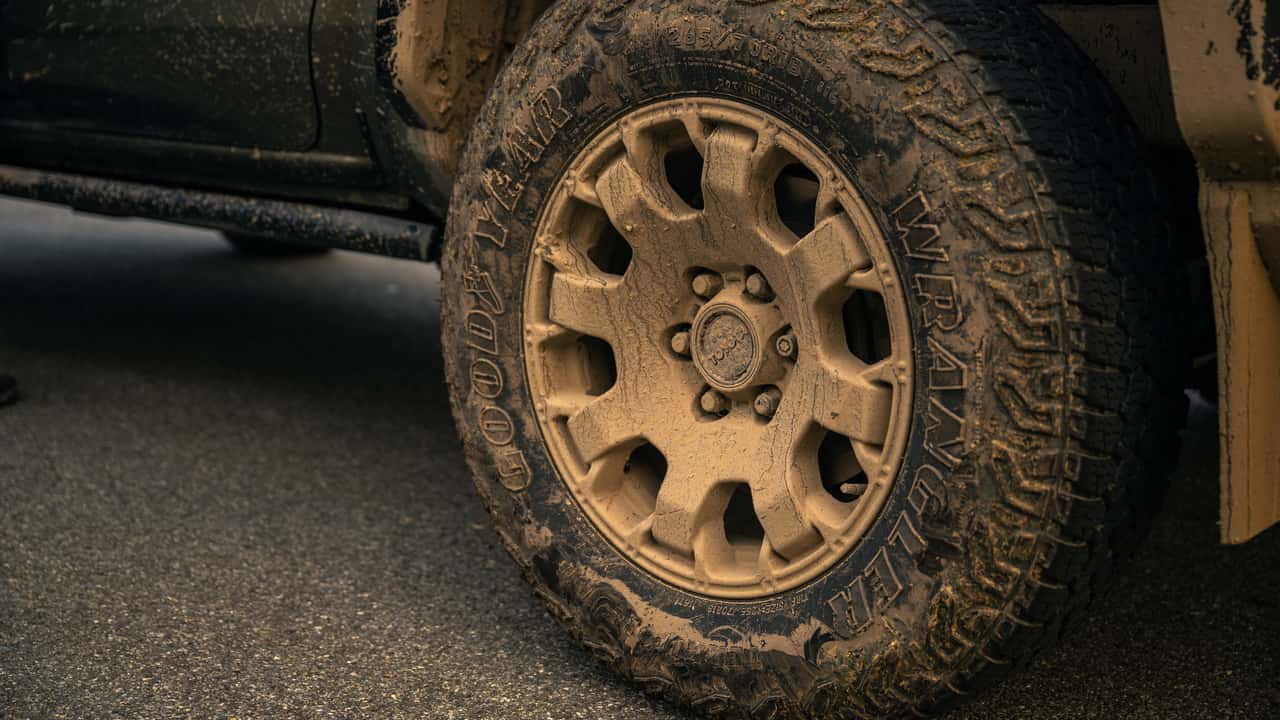
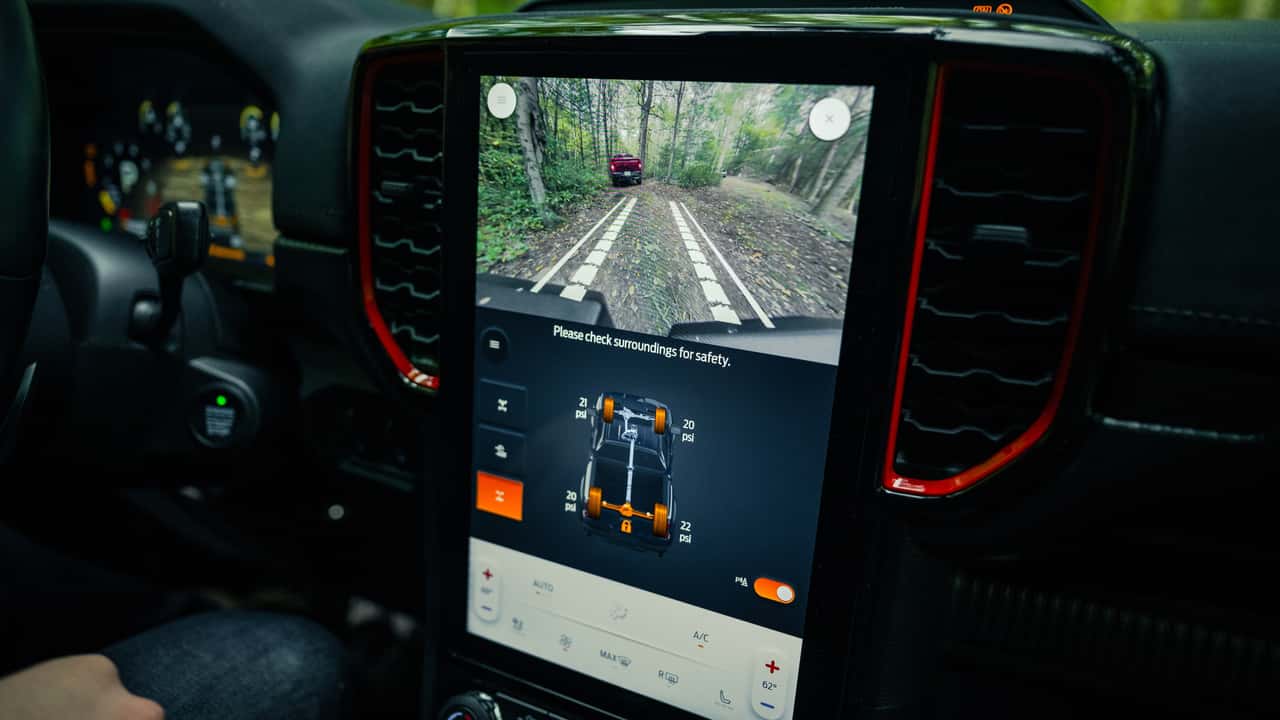
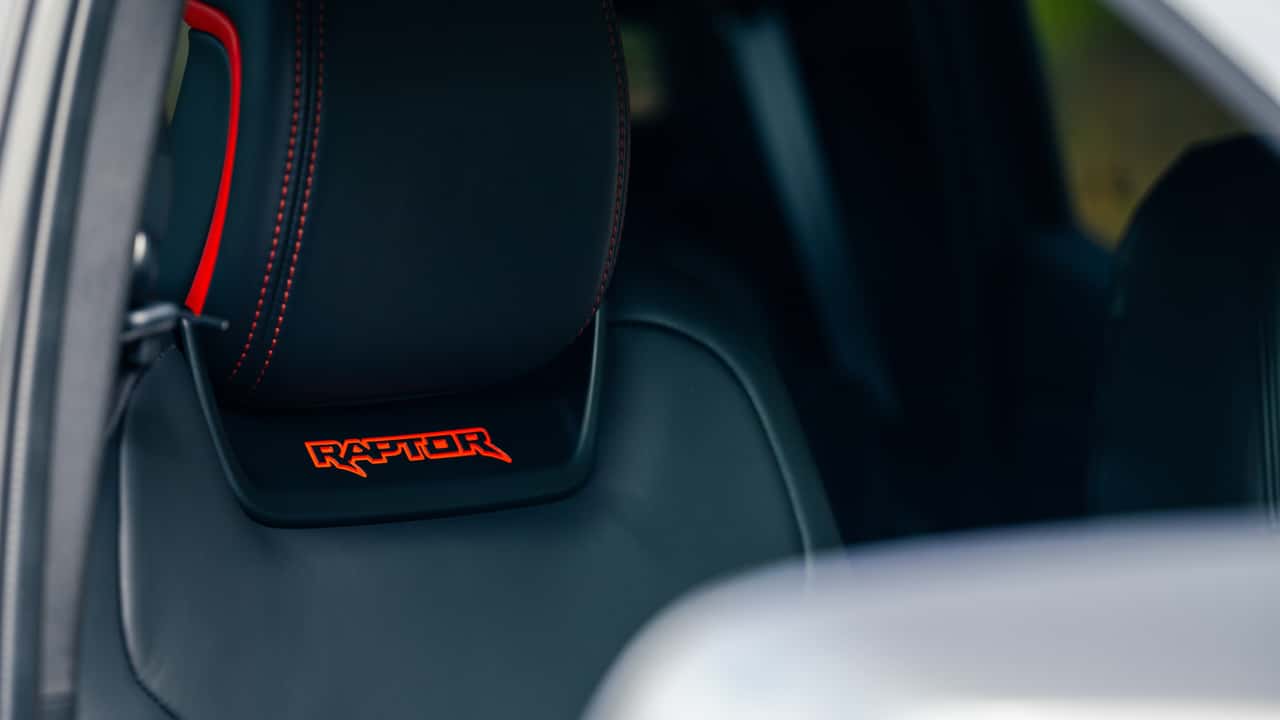
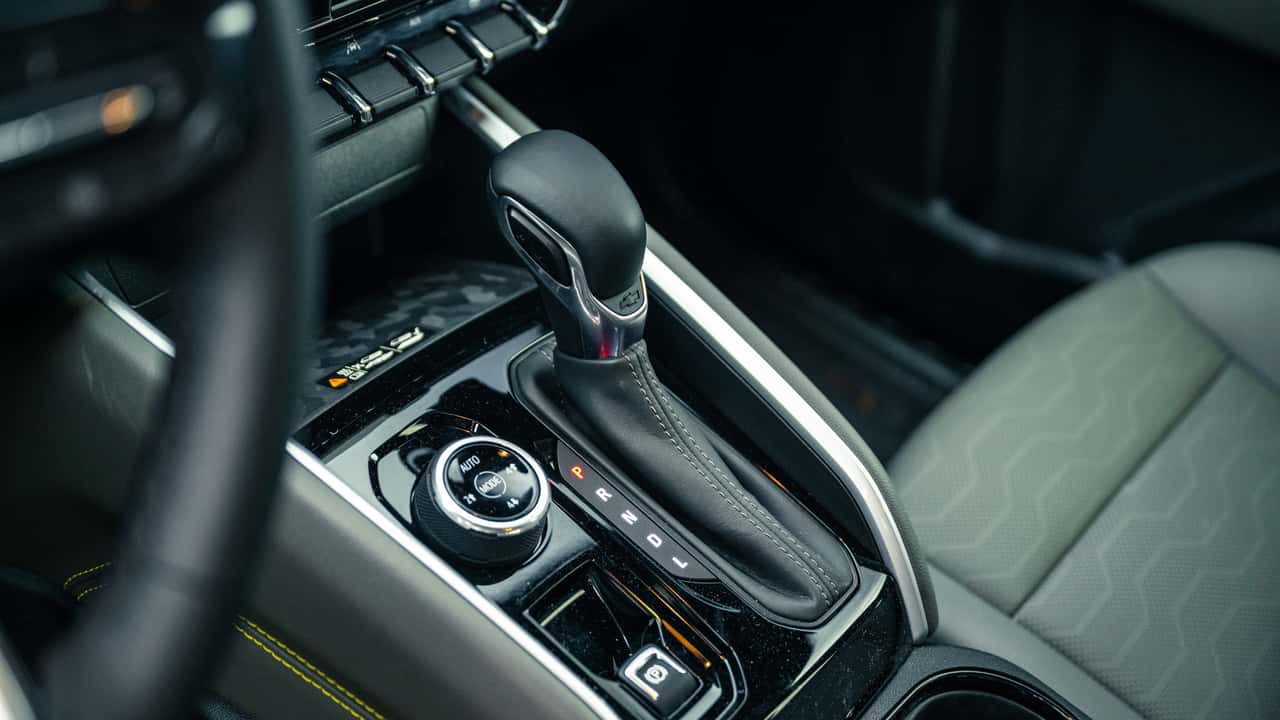
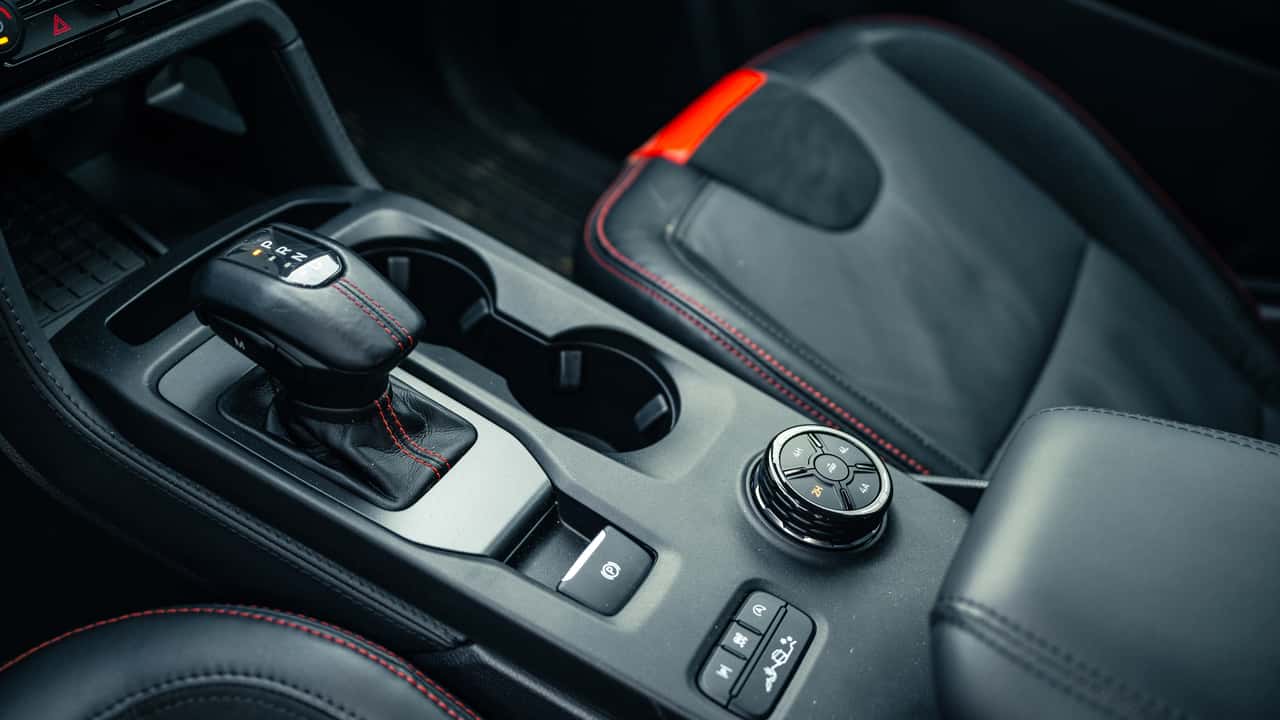
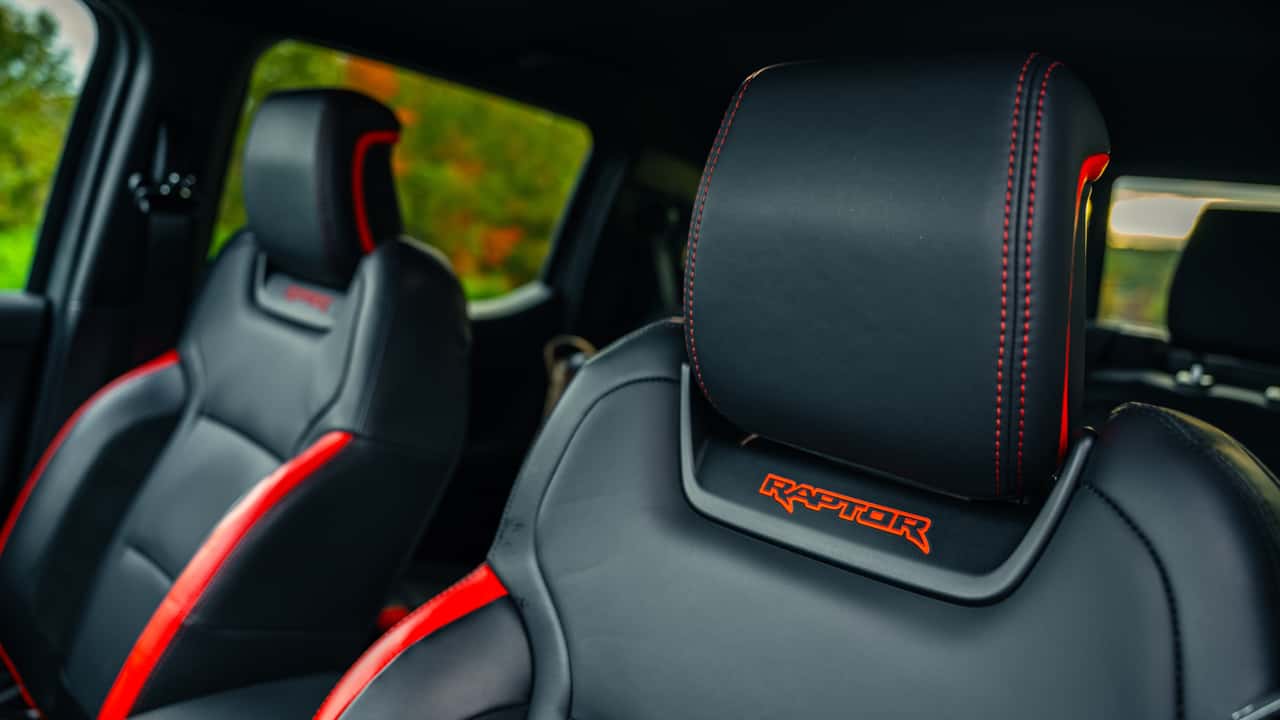
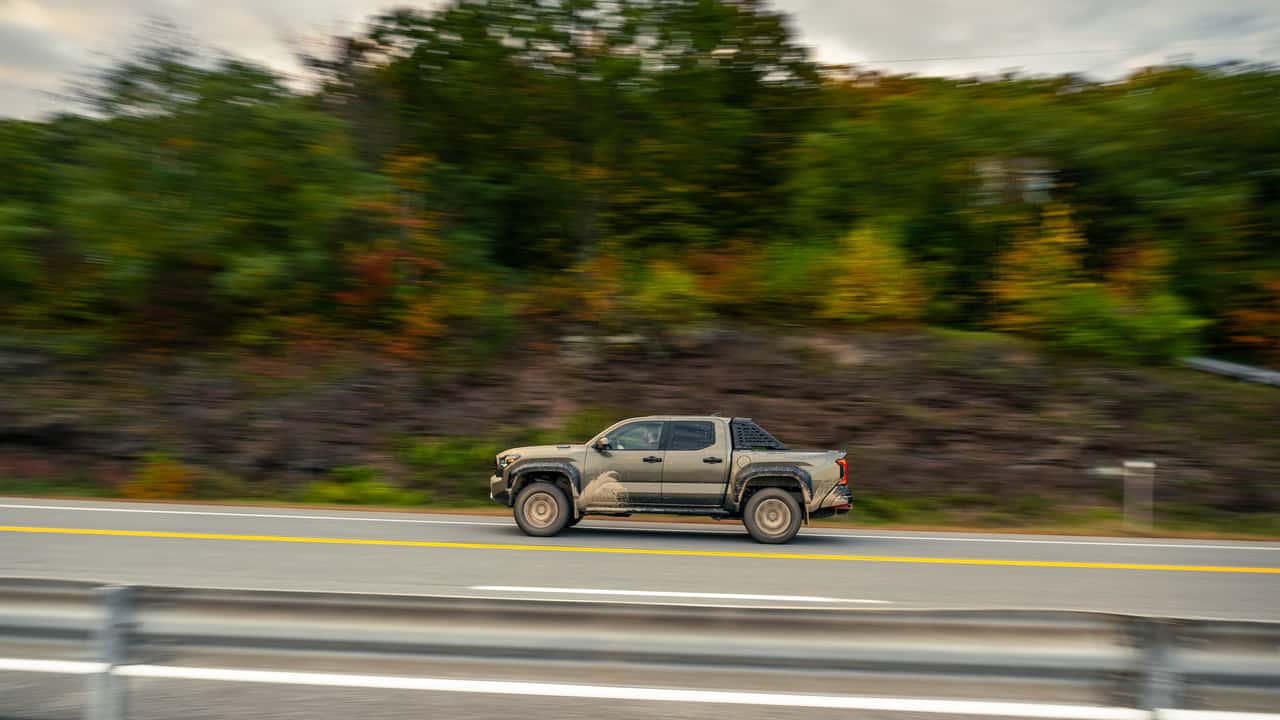
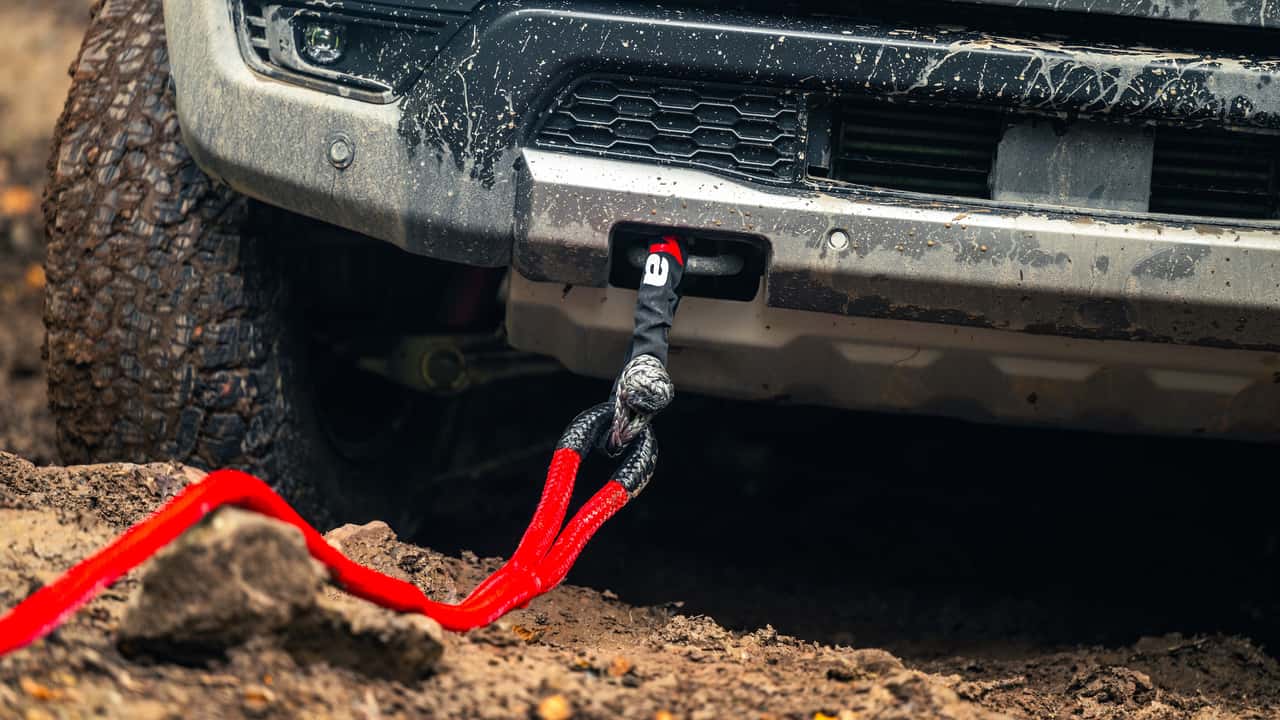
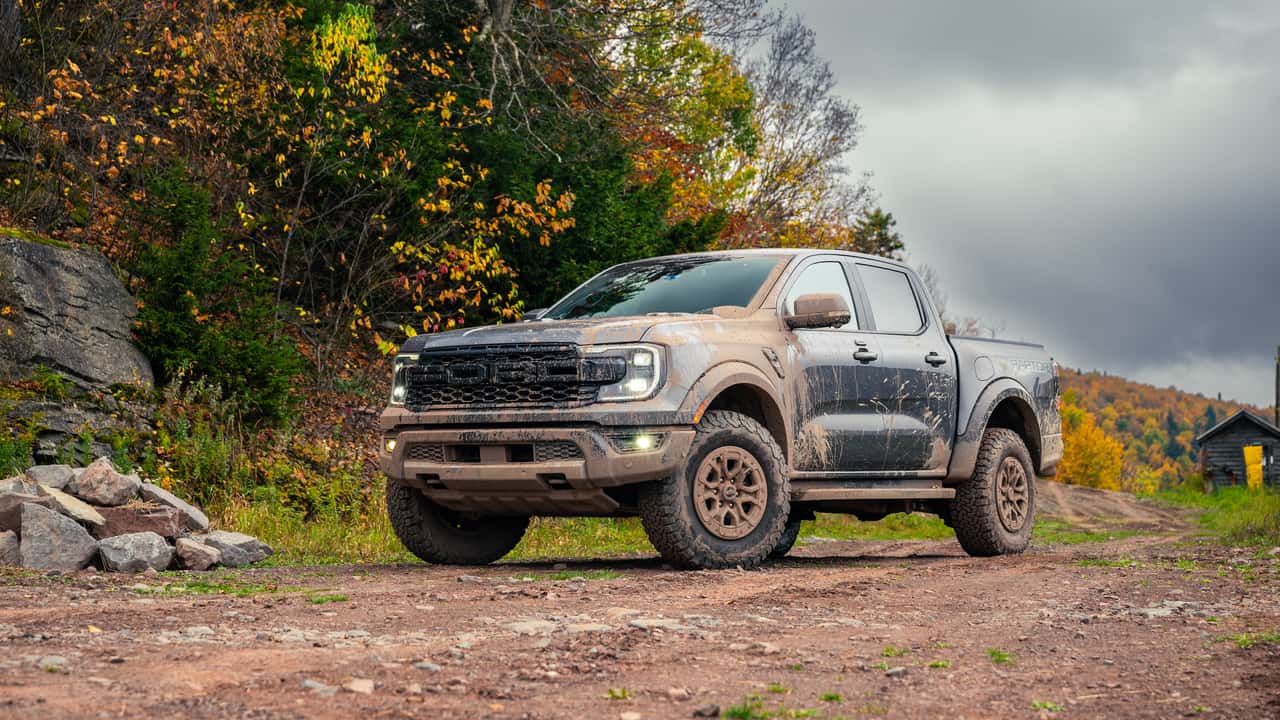
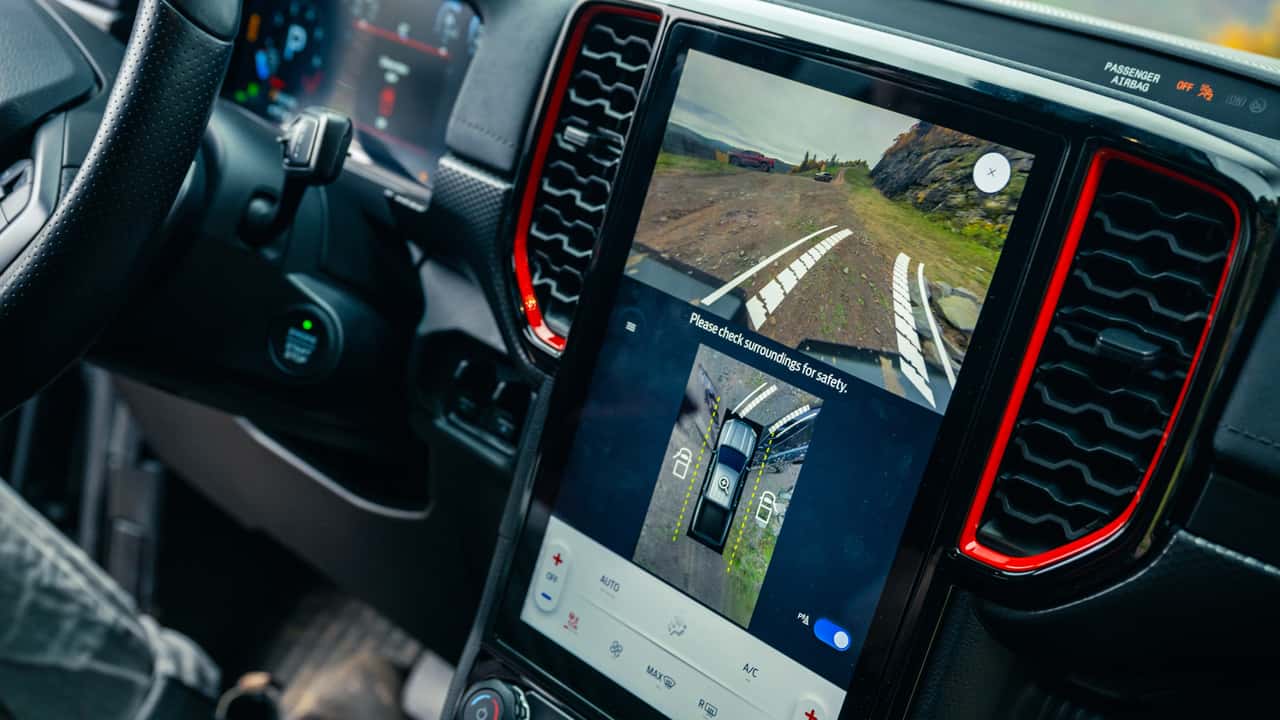
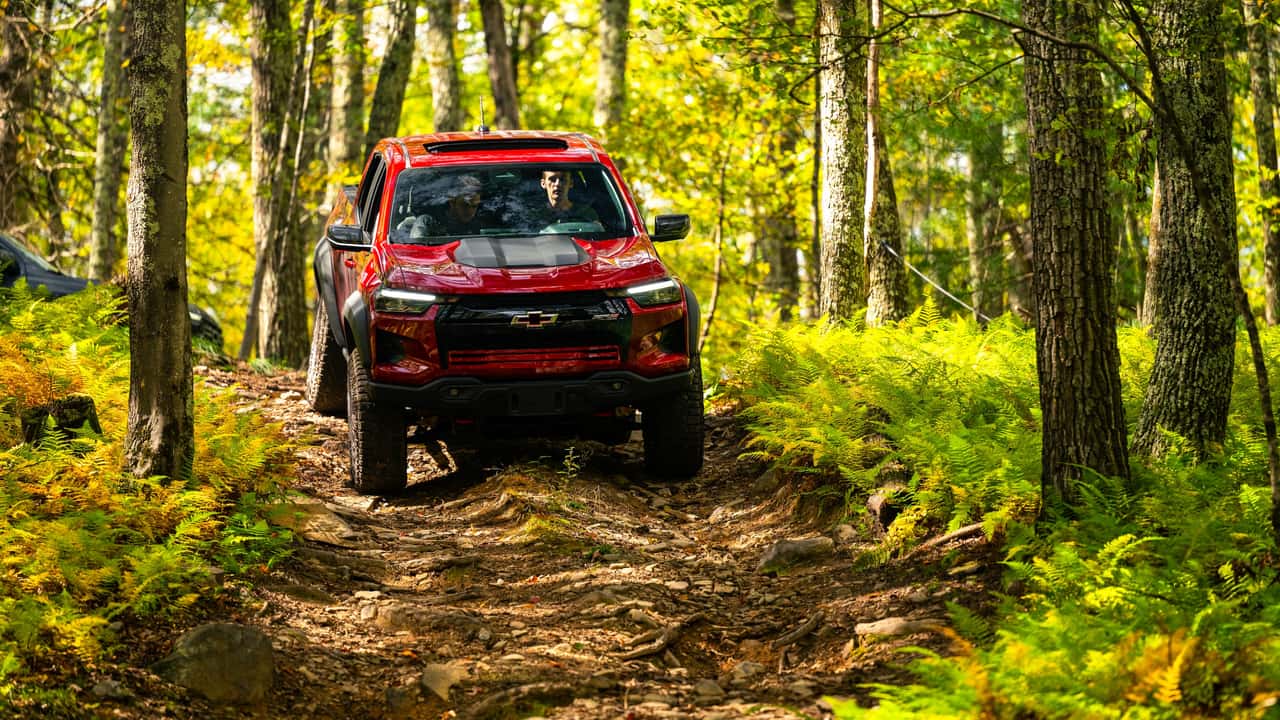
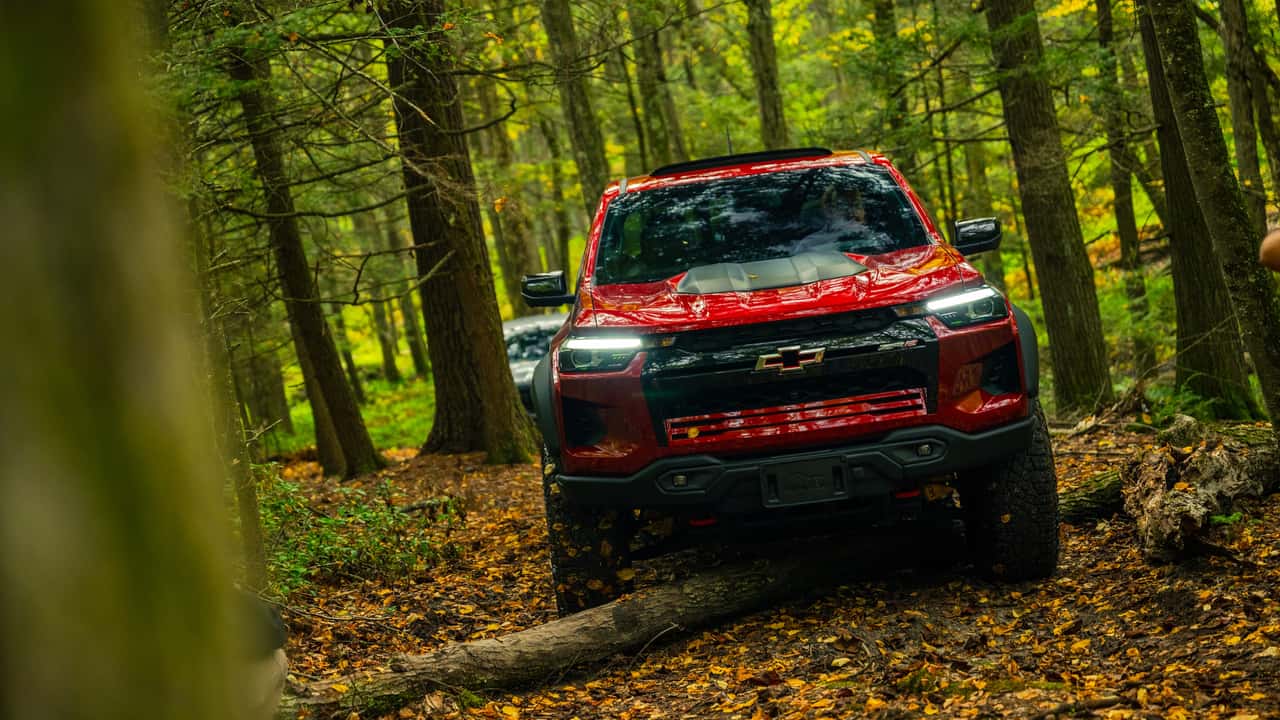
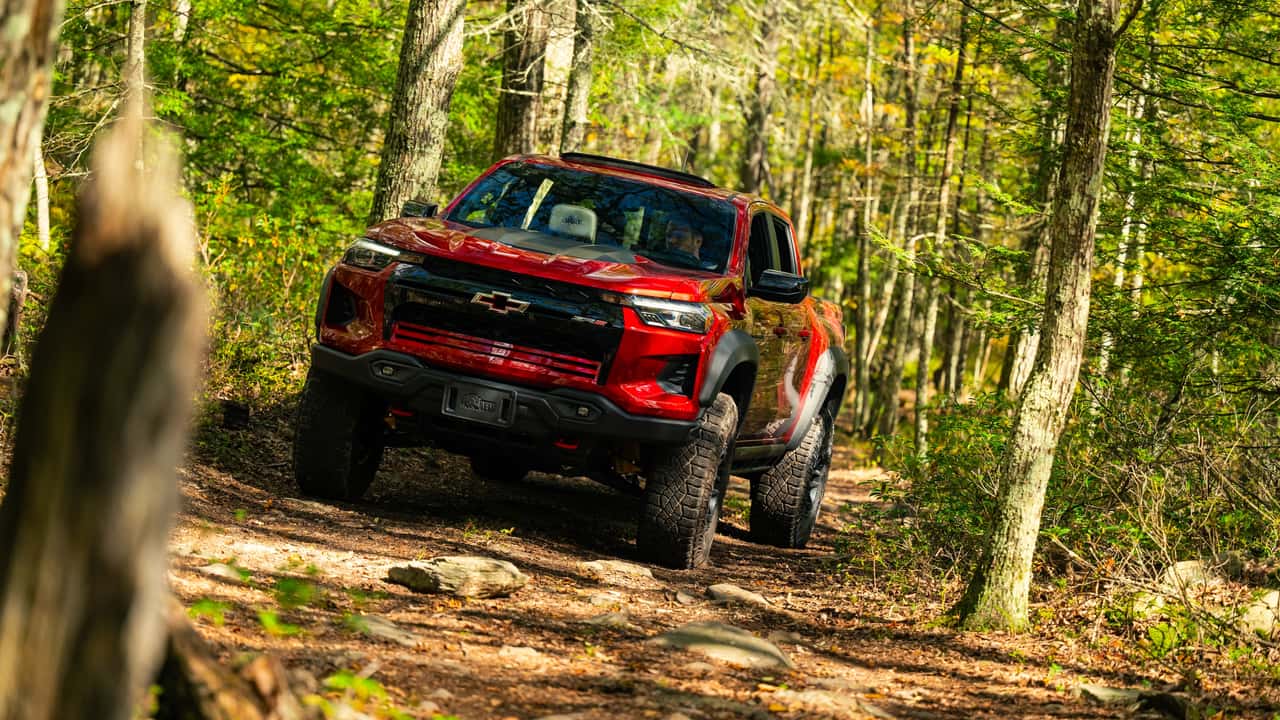
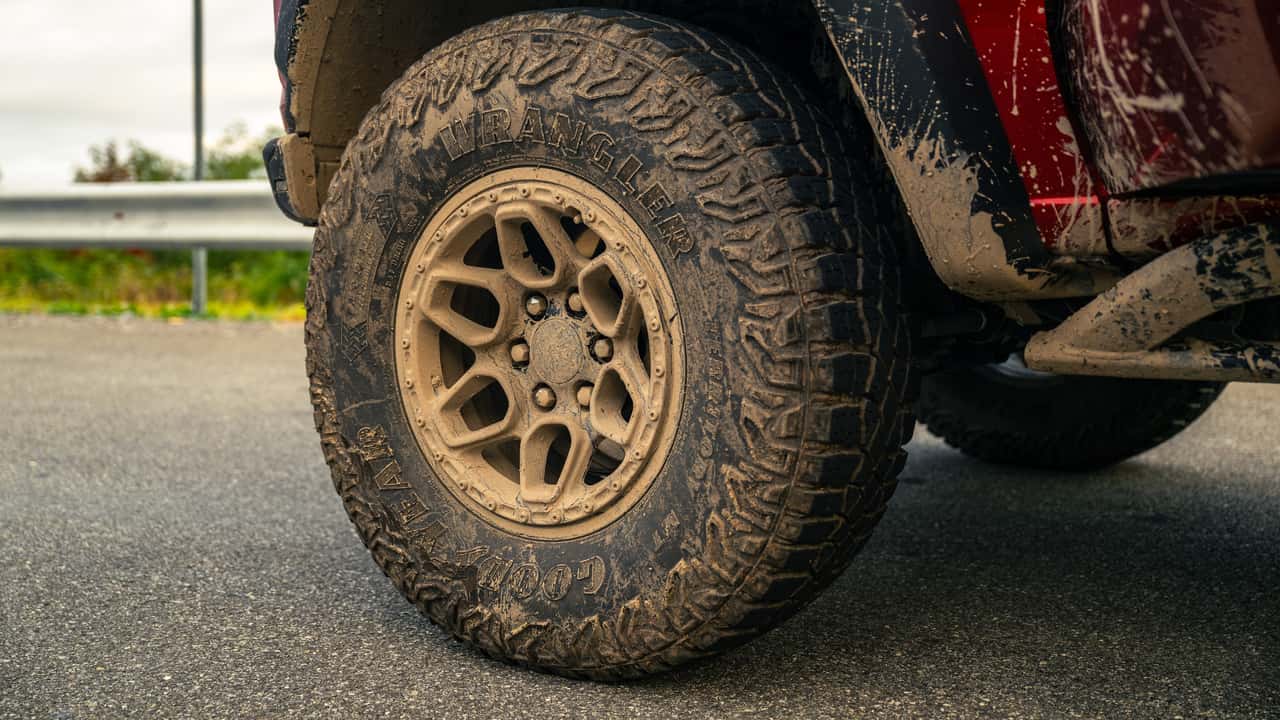
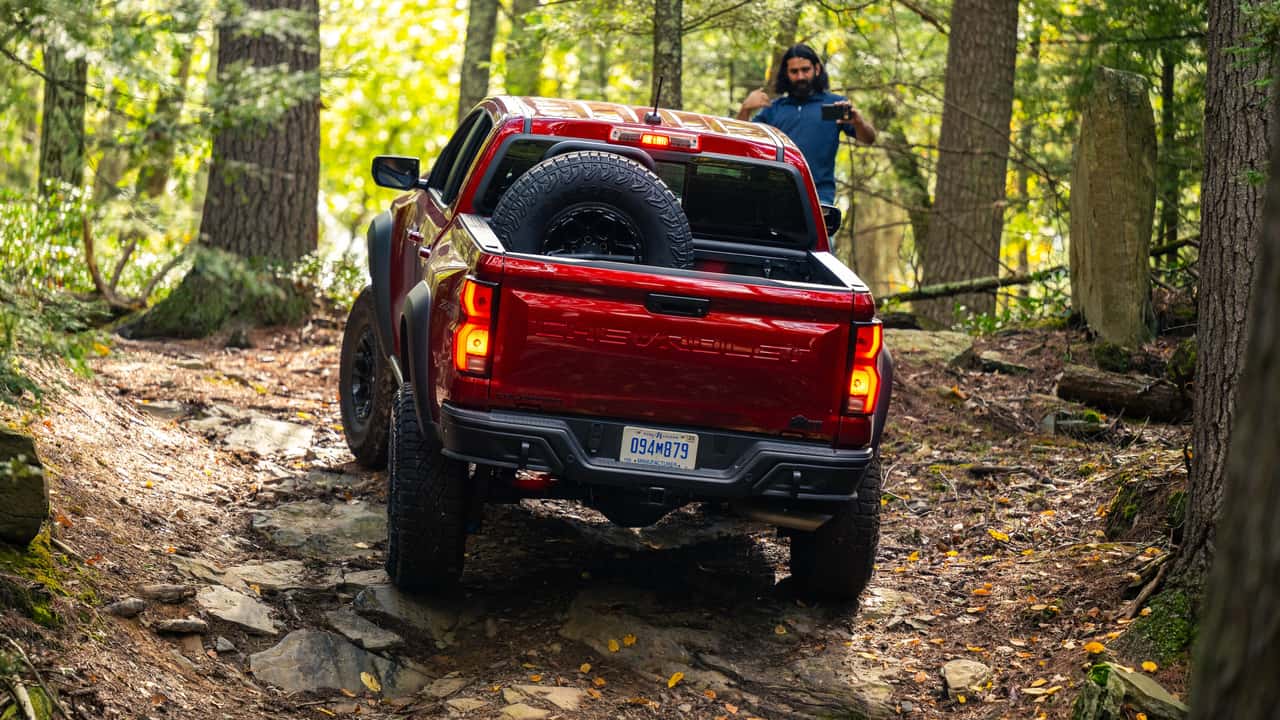
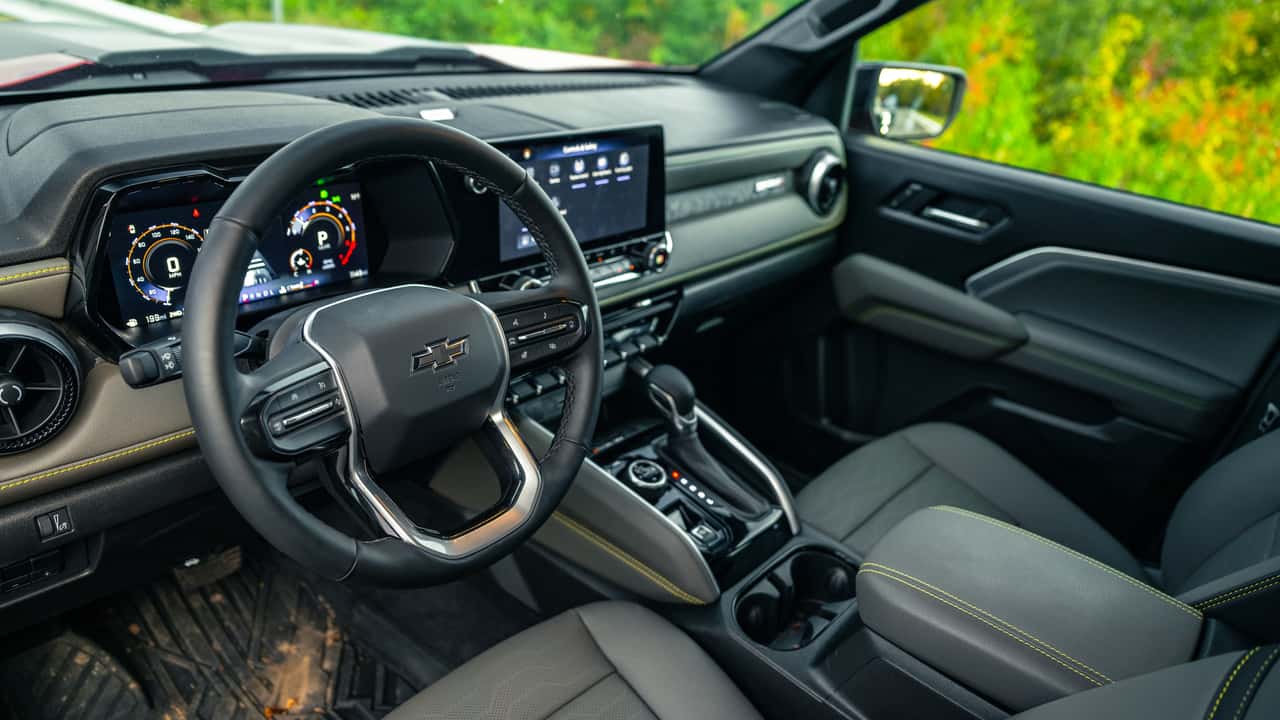
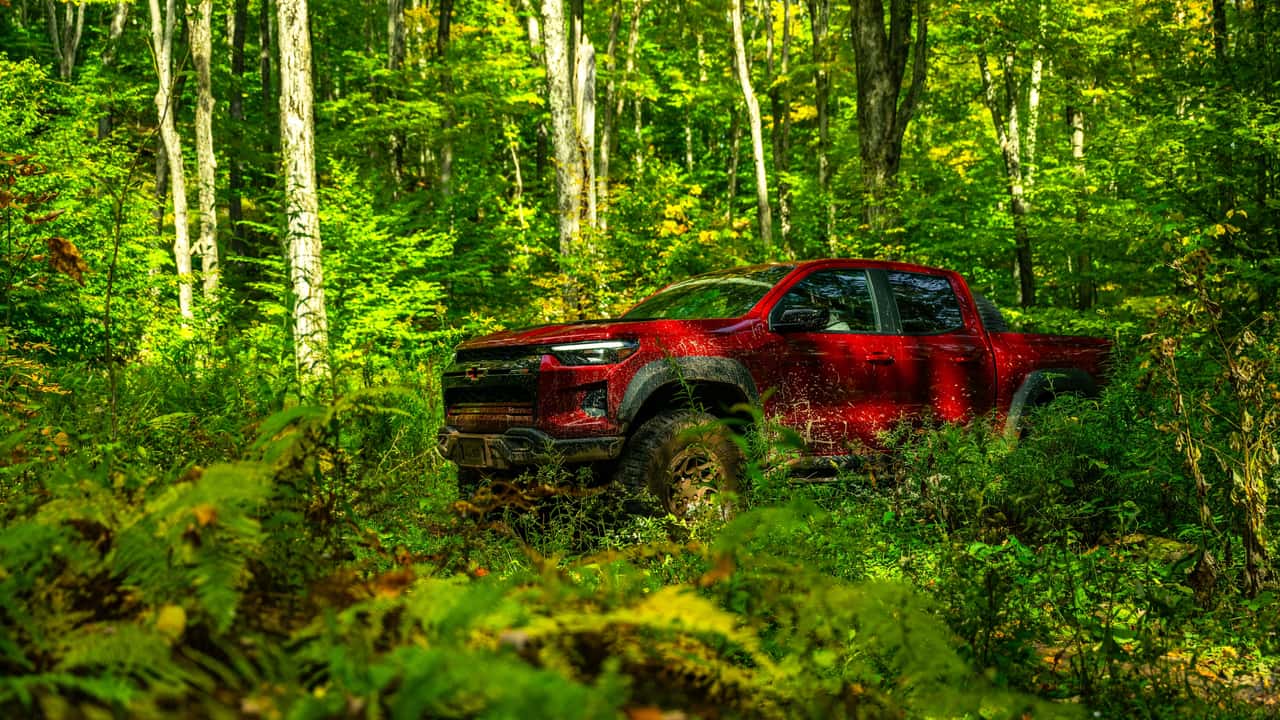
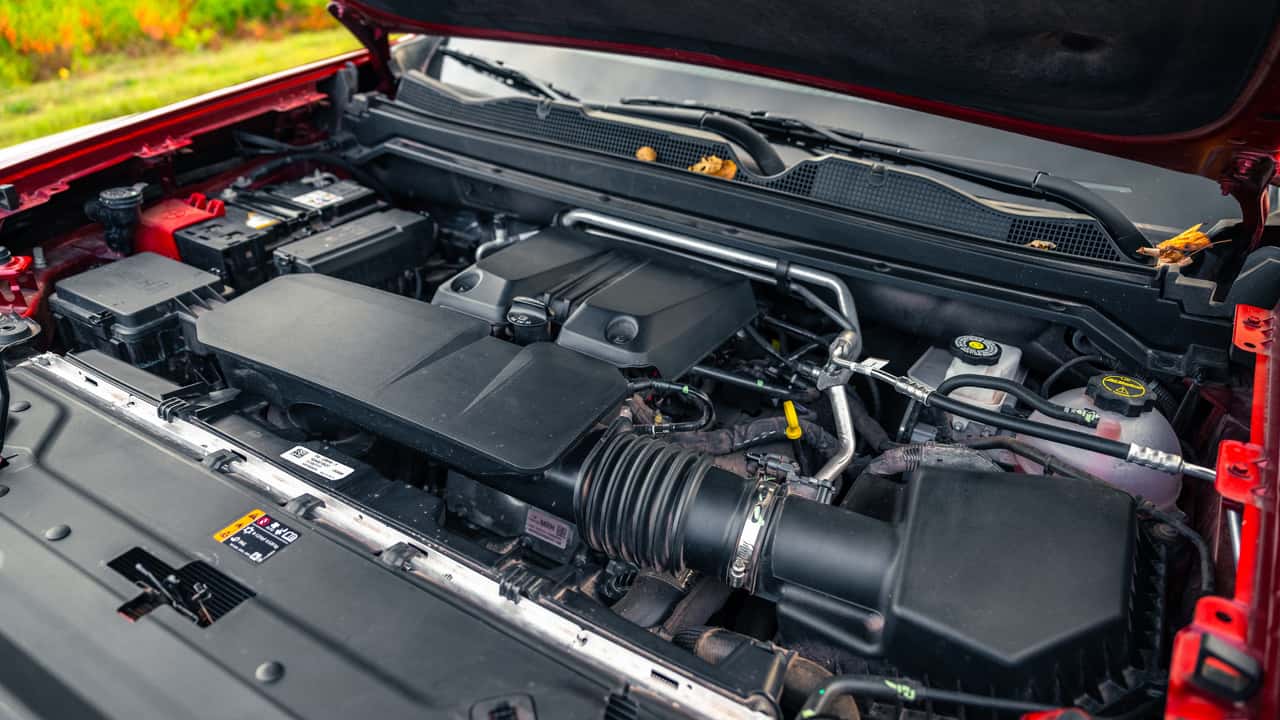
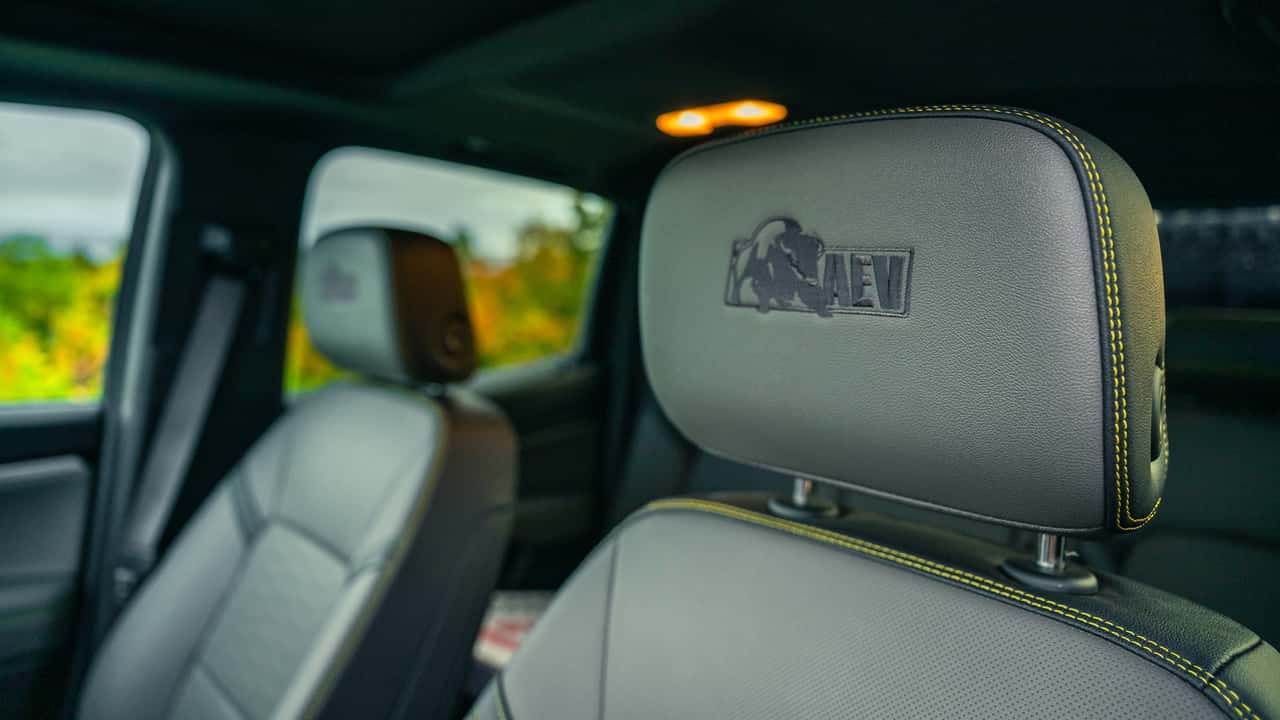
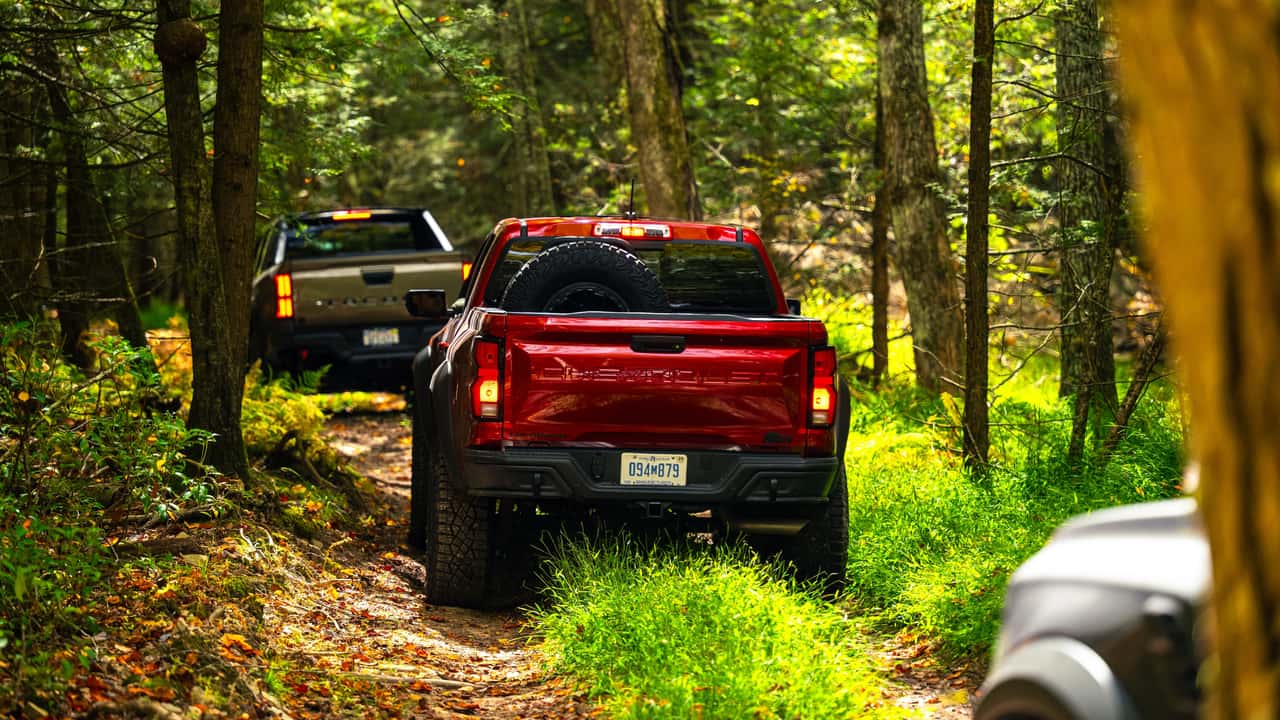
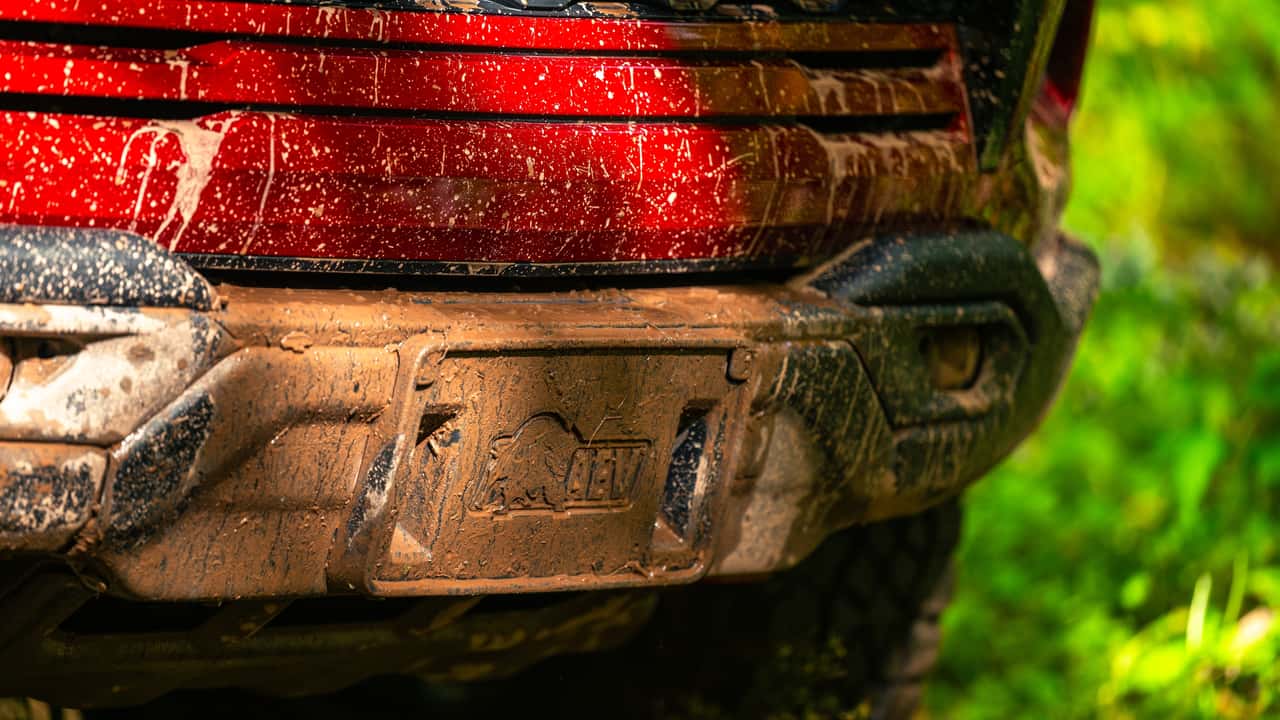
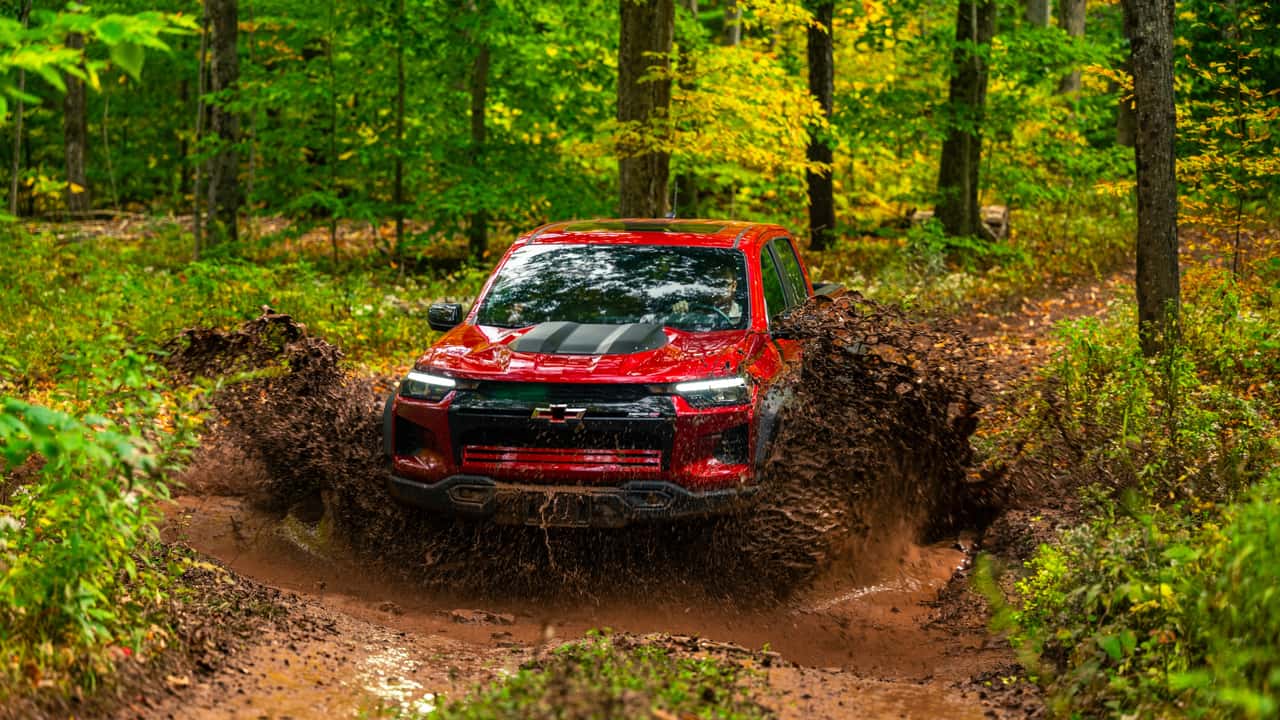
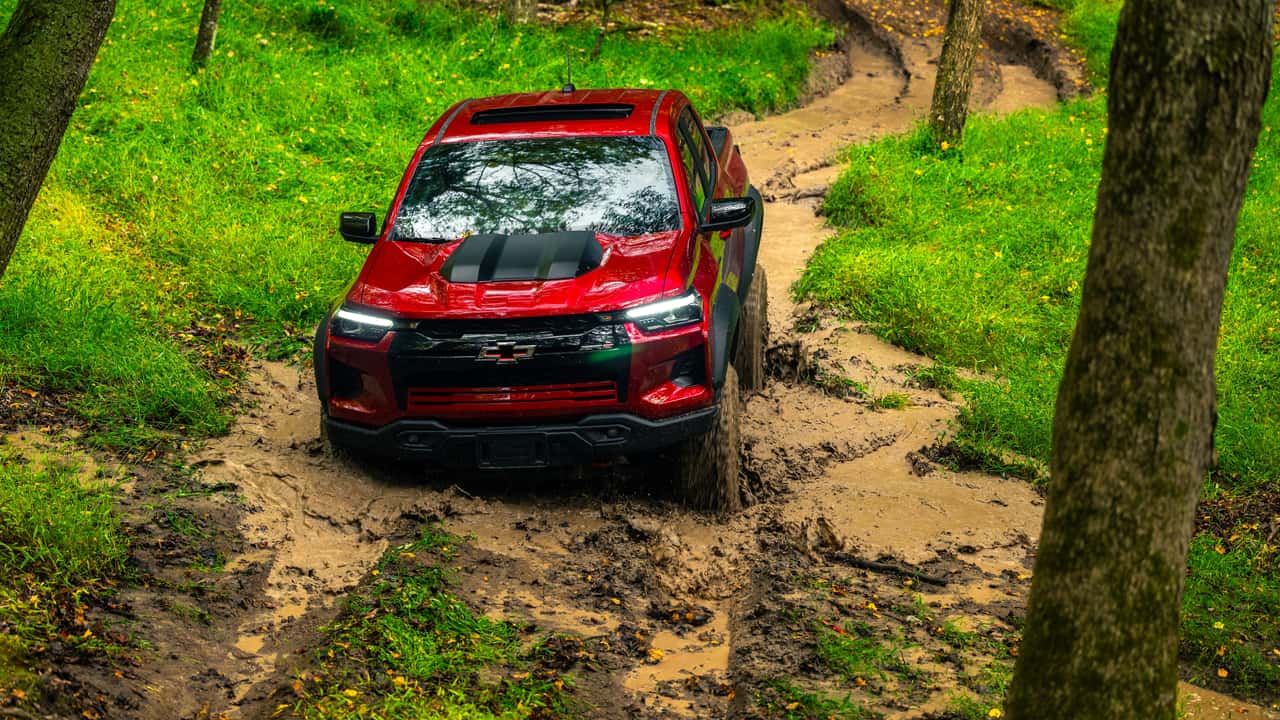
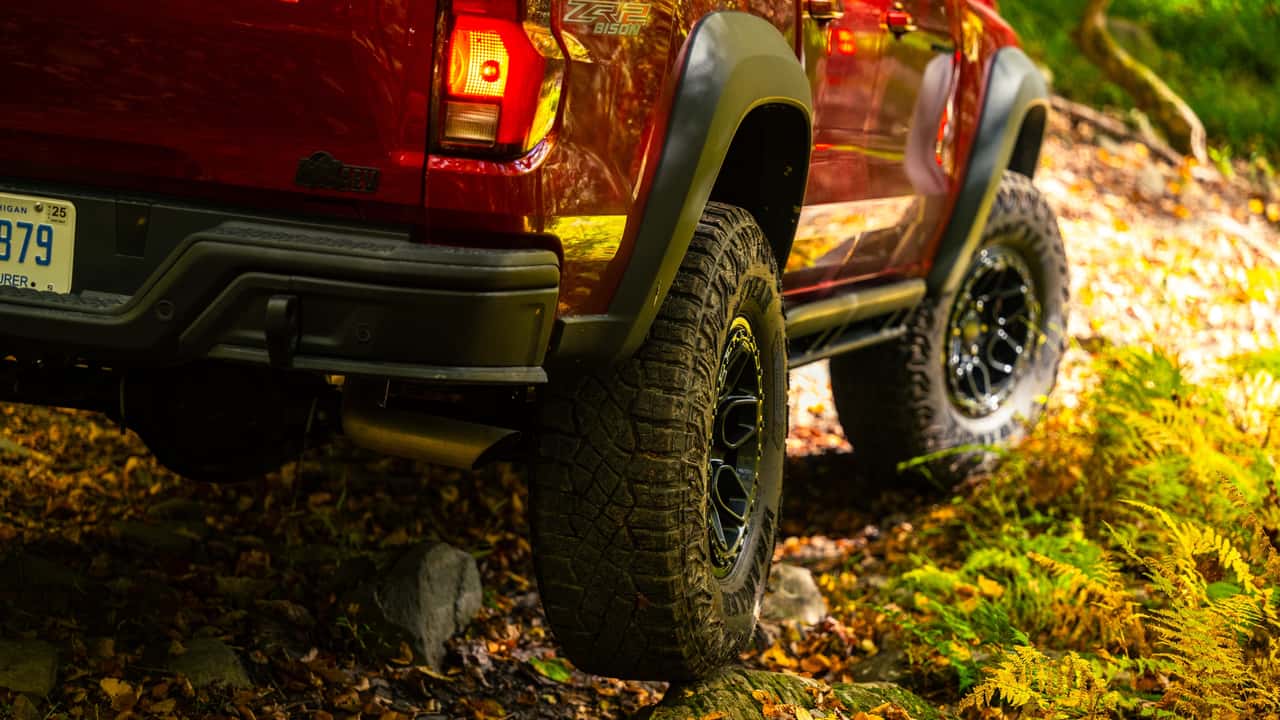
Write Reviews
Leave a Comment
No Comments & Reviews